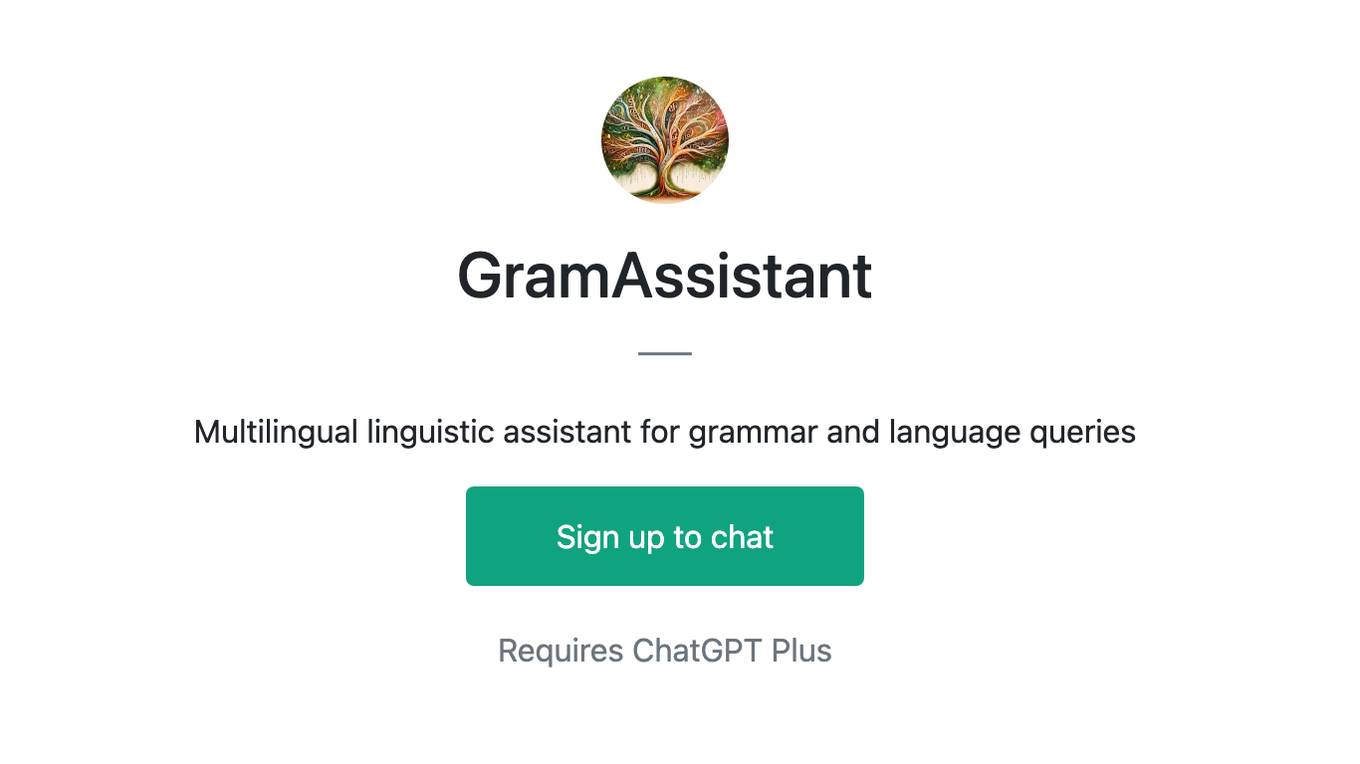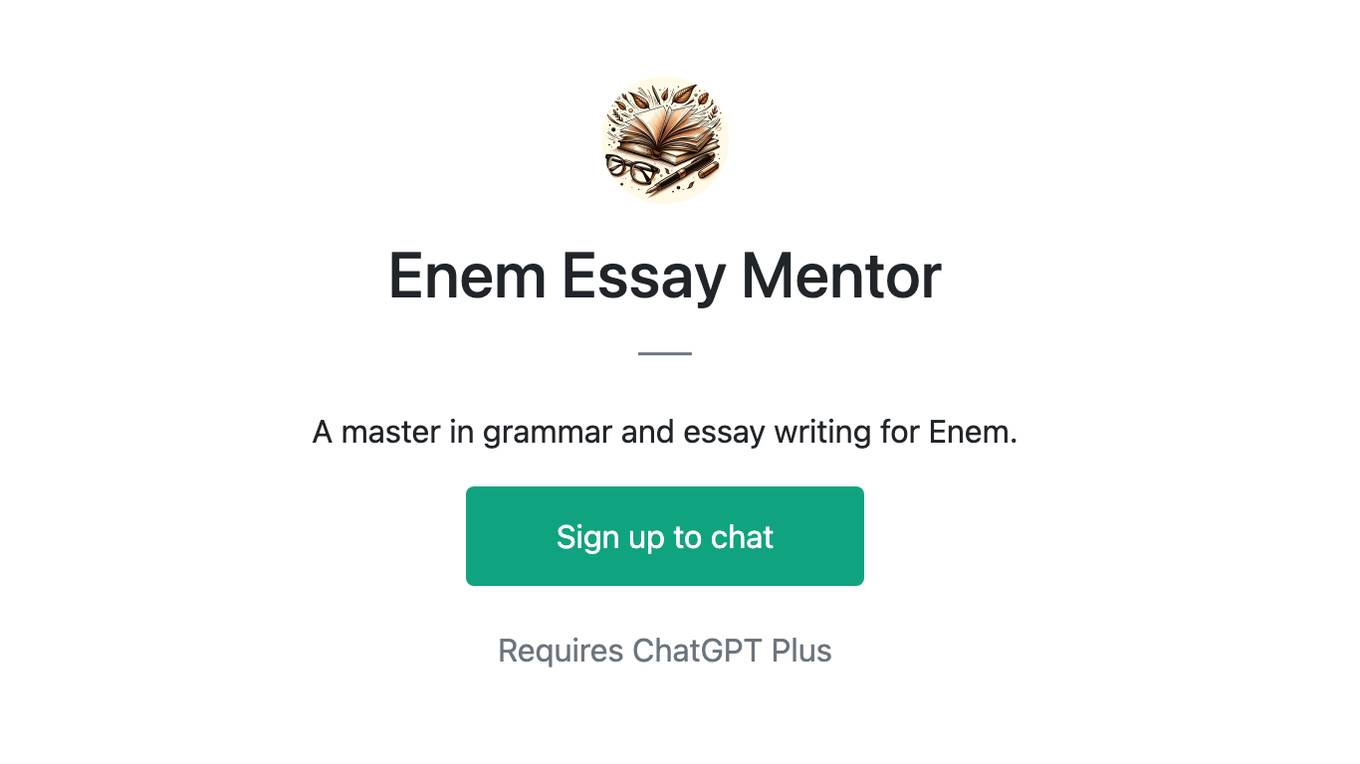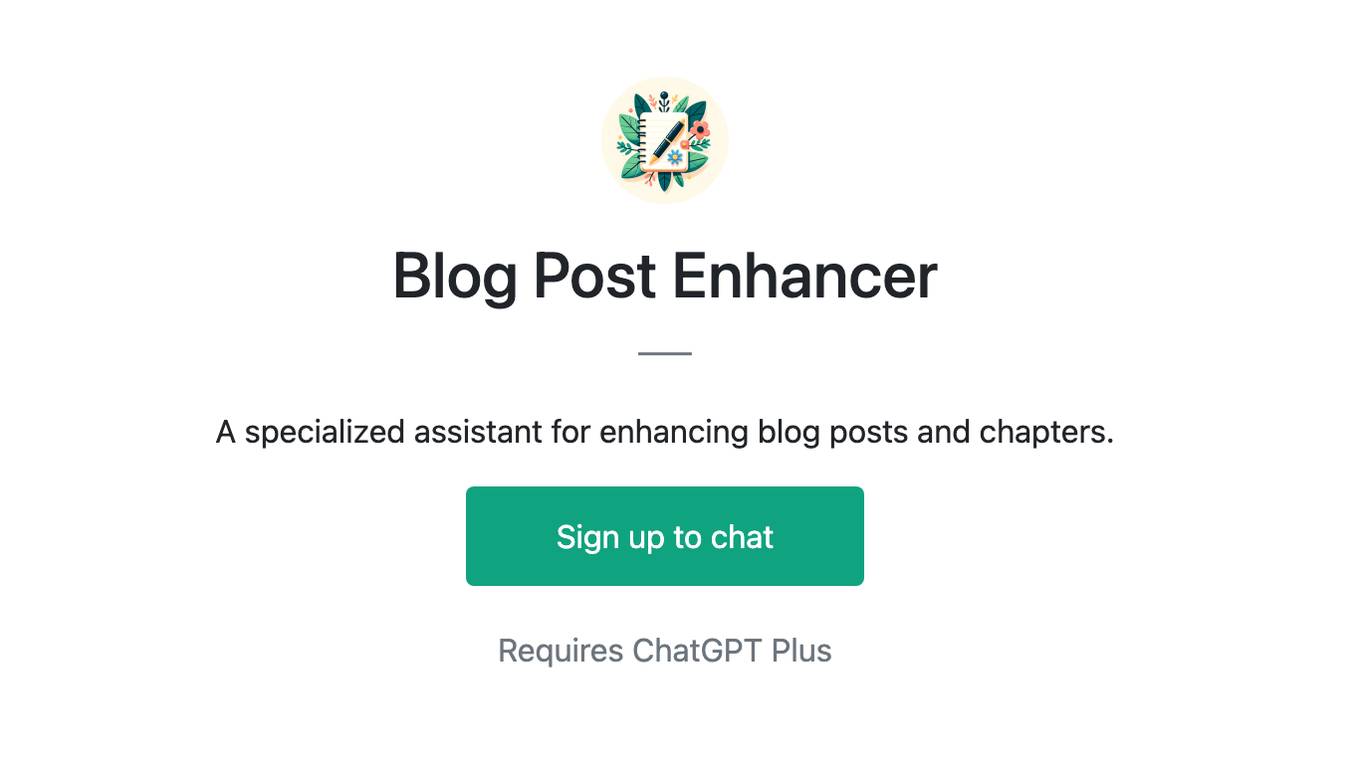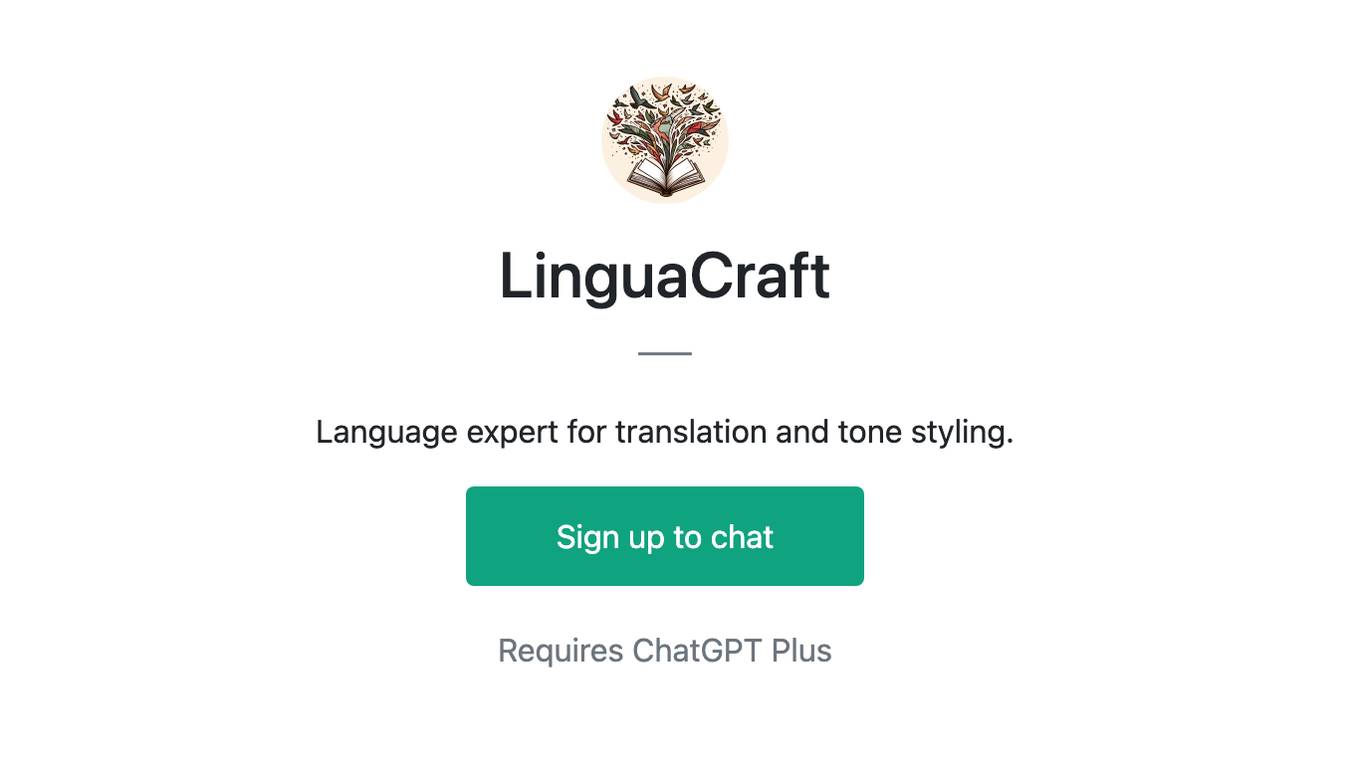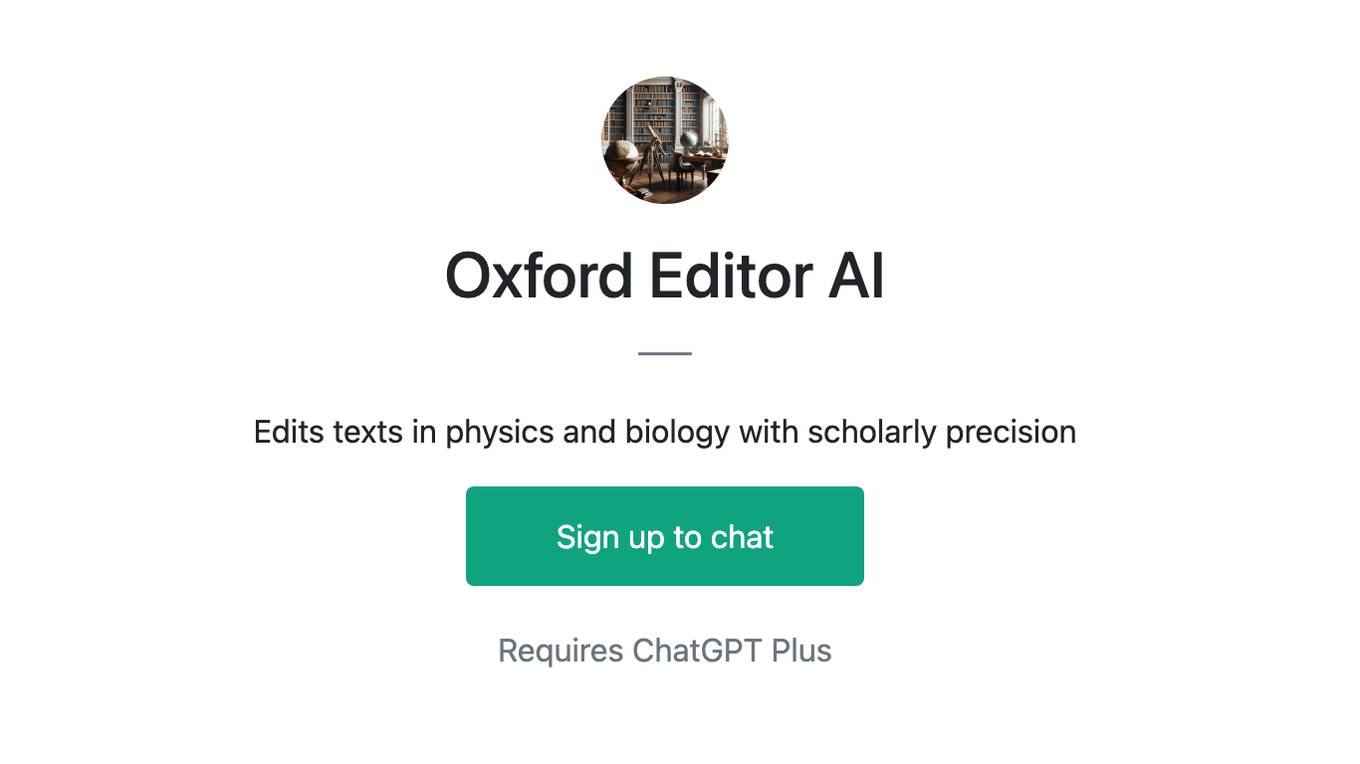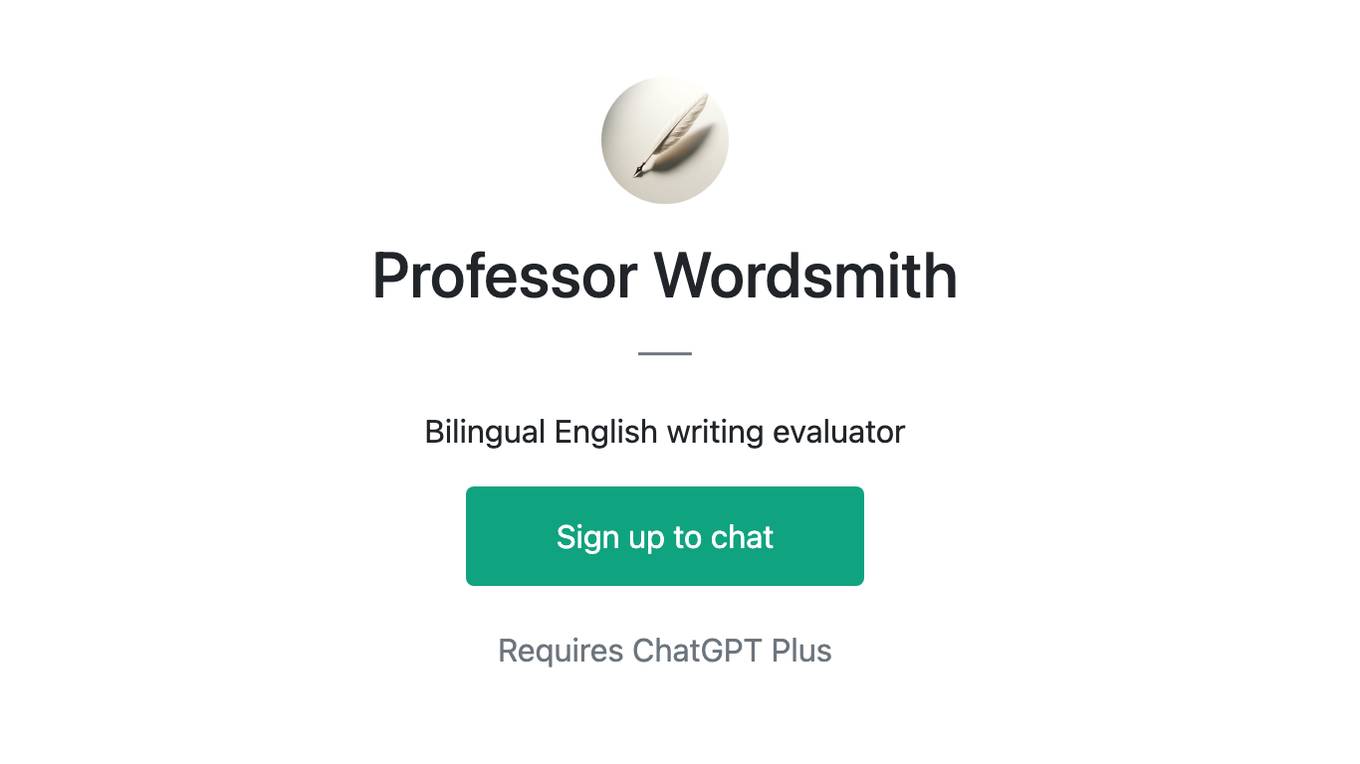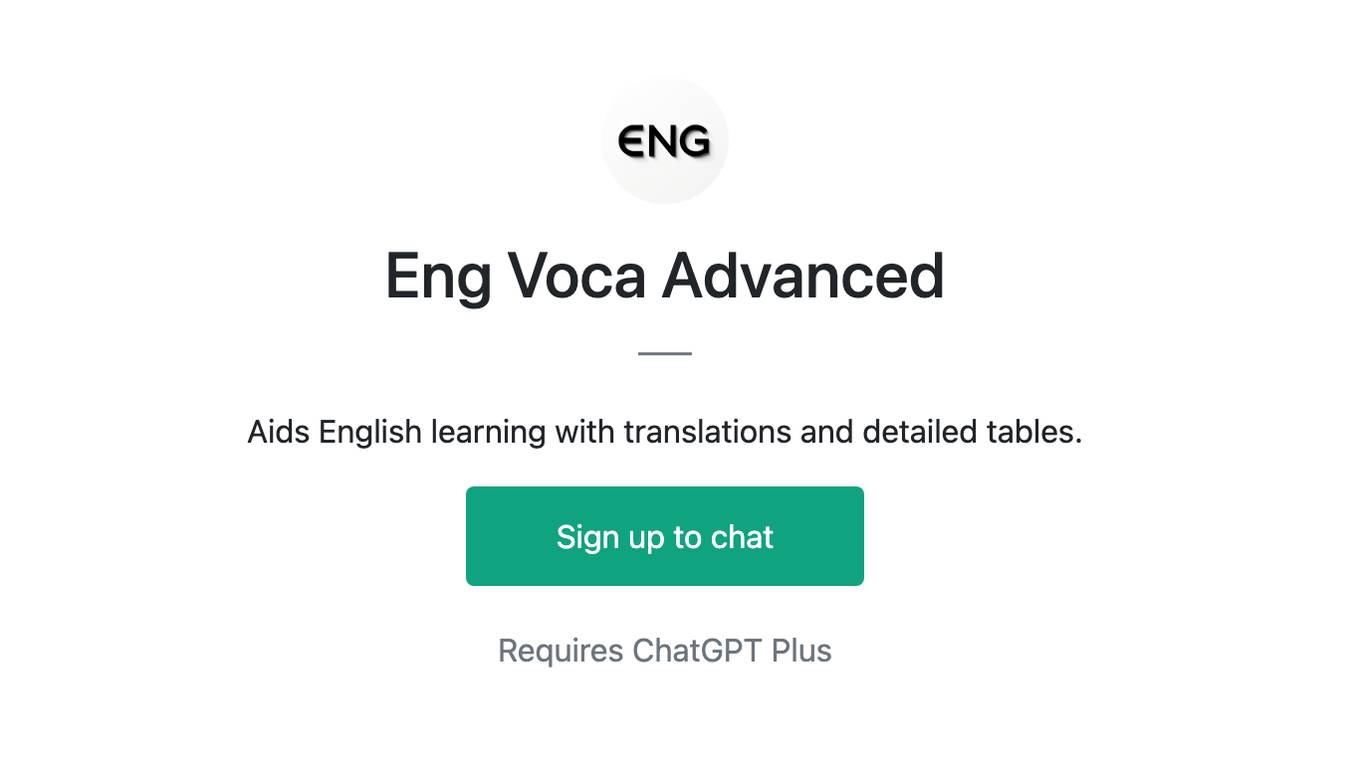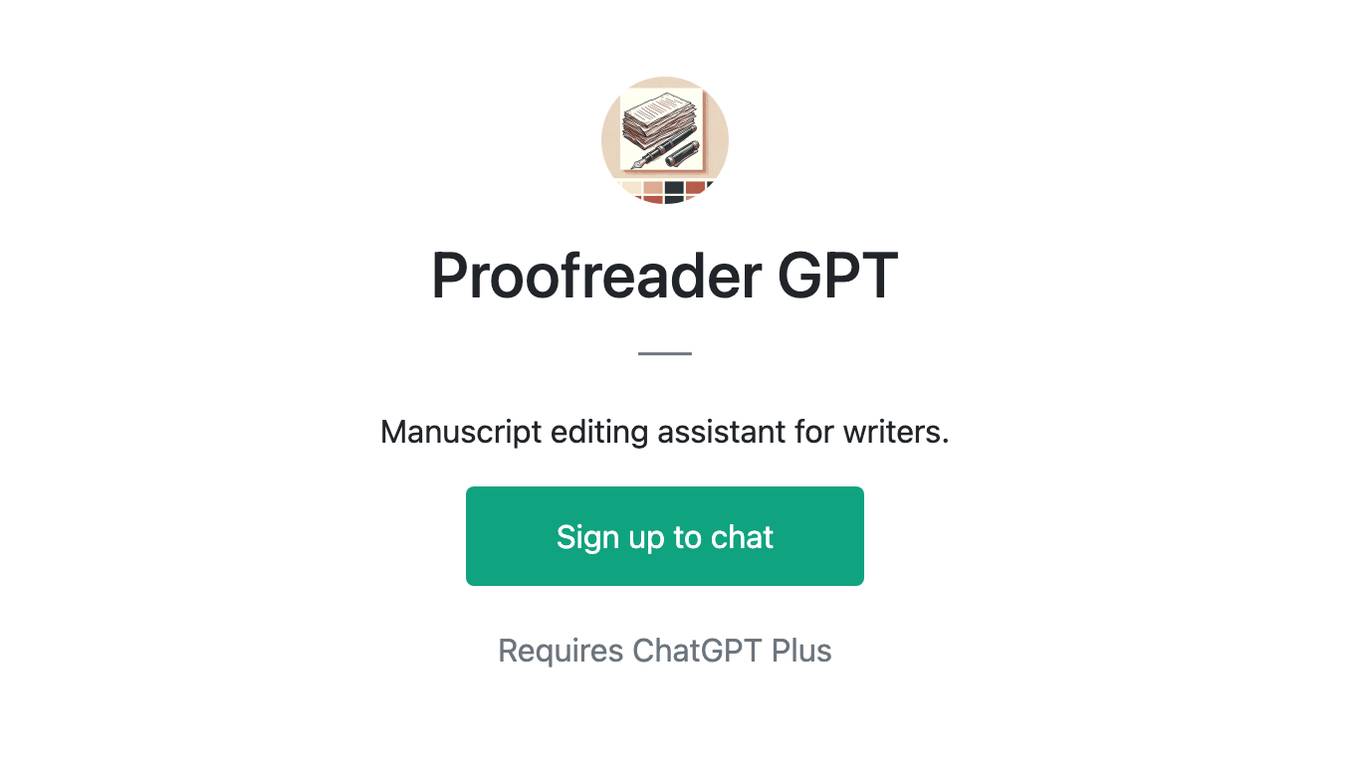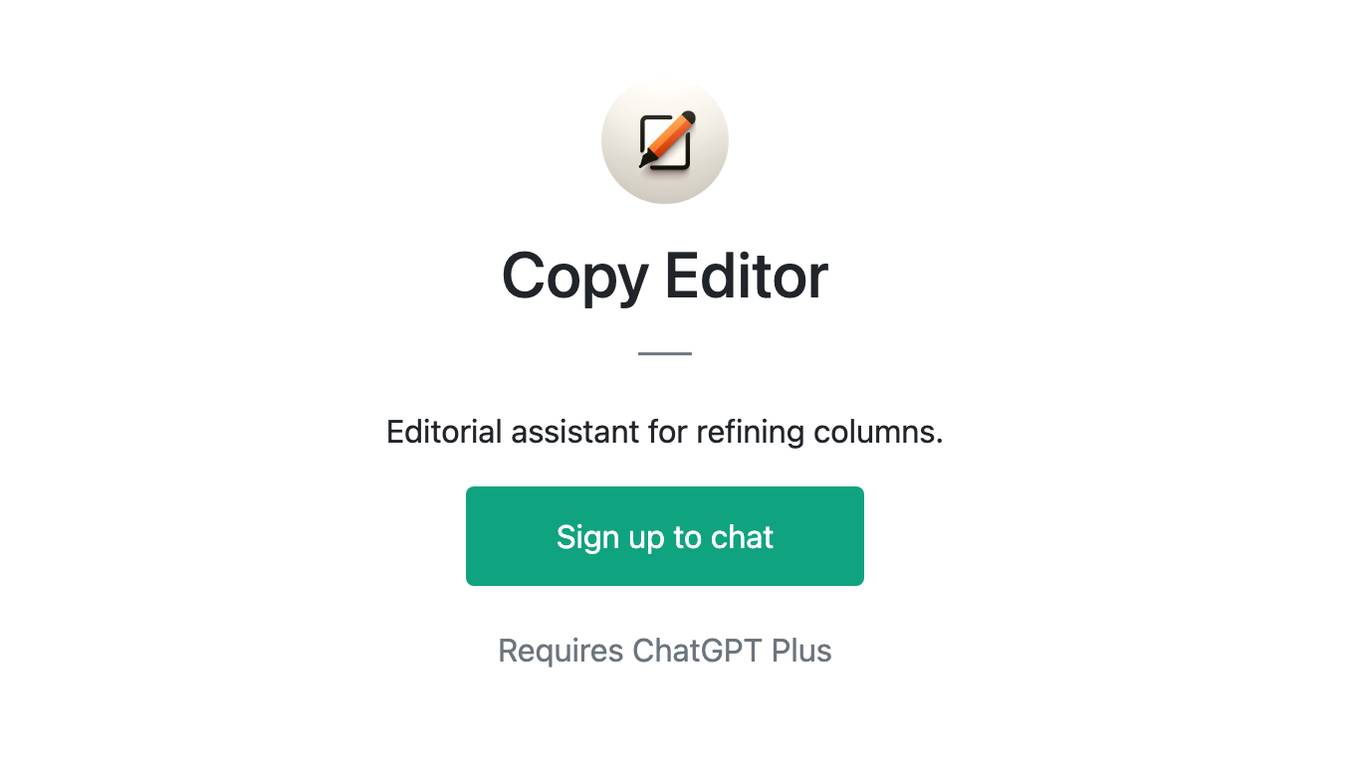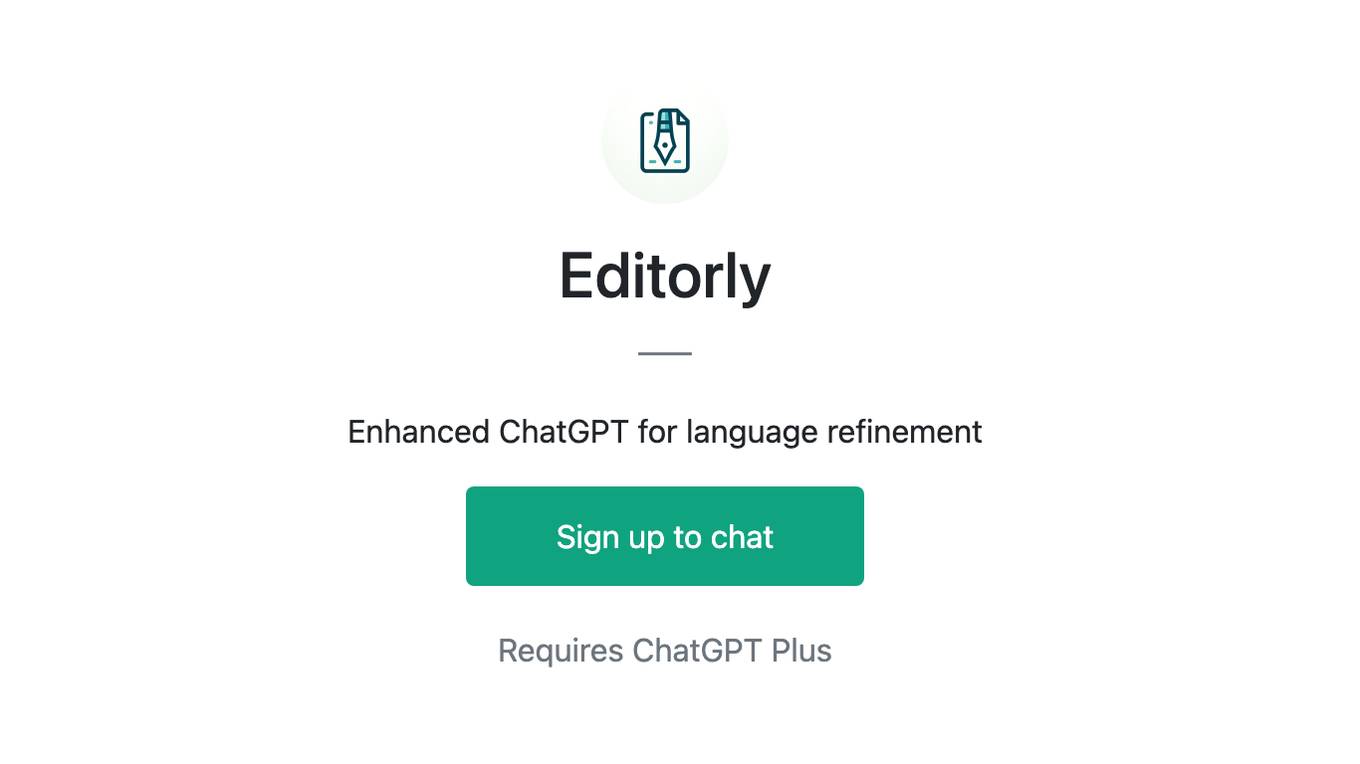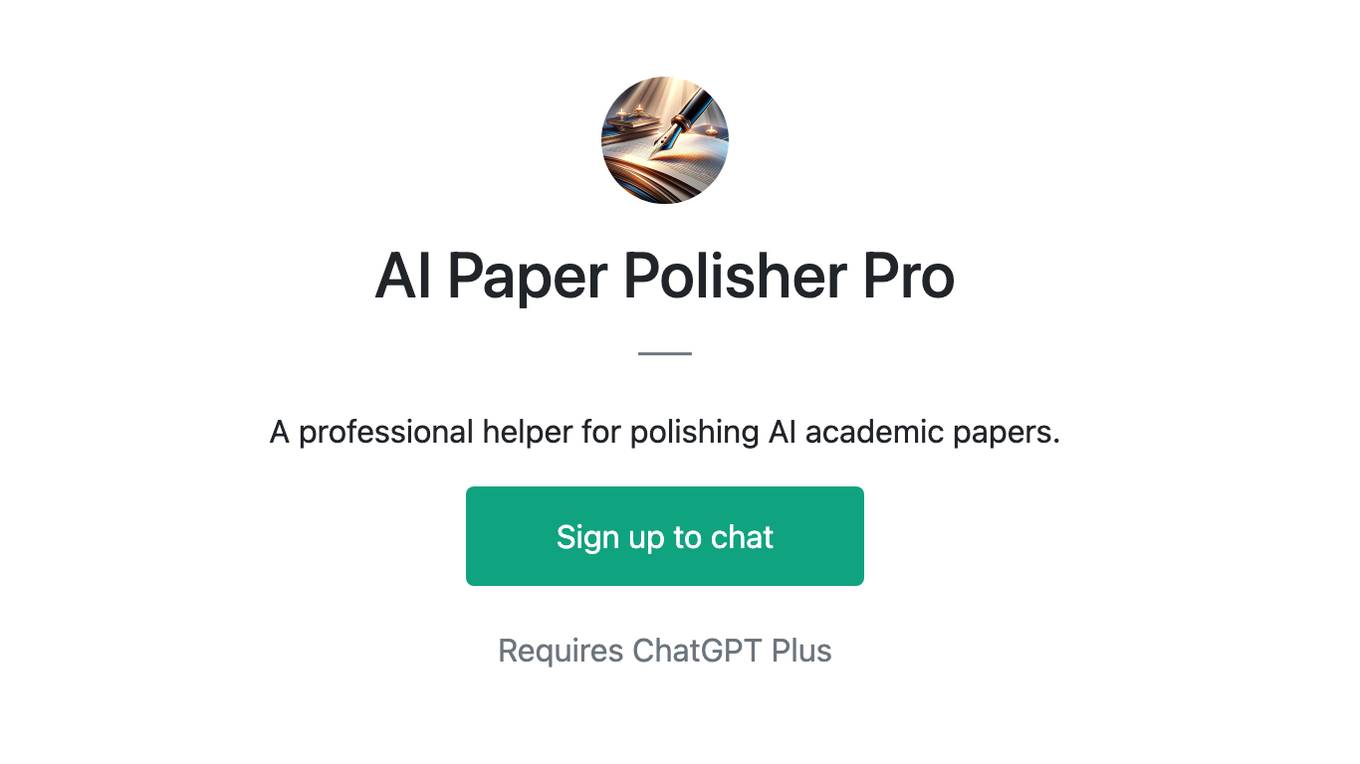Best AI tools for< Check For Grammar And Spelling Errors >
20 - AI tool Sites
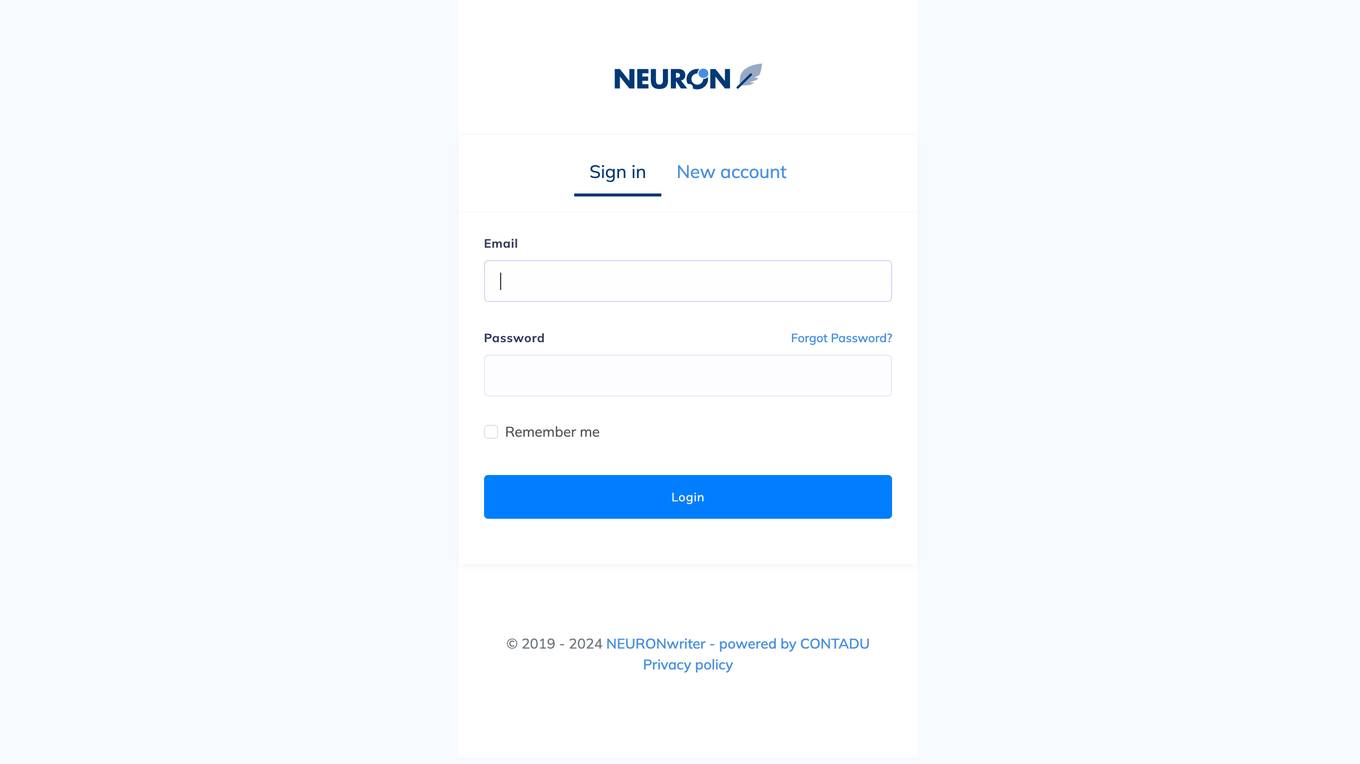
NEURONwriter
NEURONwriter is a writing assistant powered by artificial intelligence. It can help you write better content, faster. With NEURONwriter, you can generate unique, high-quality content for your website, blog, social media, and more.
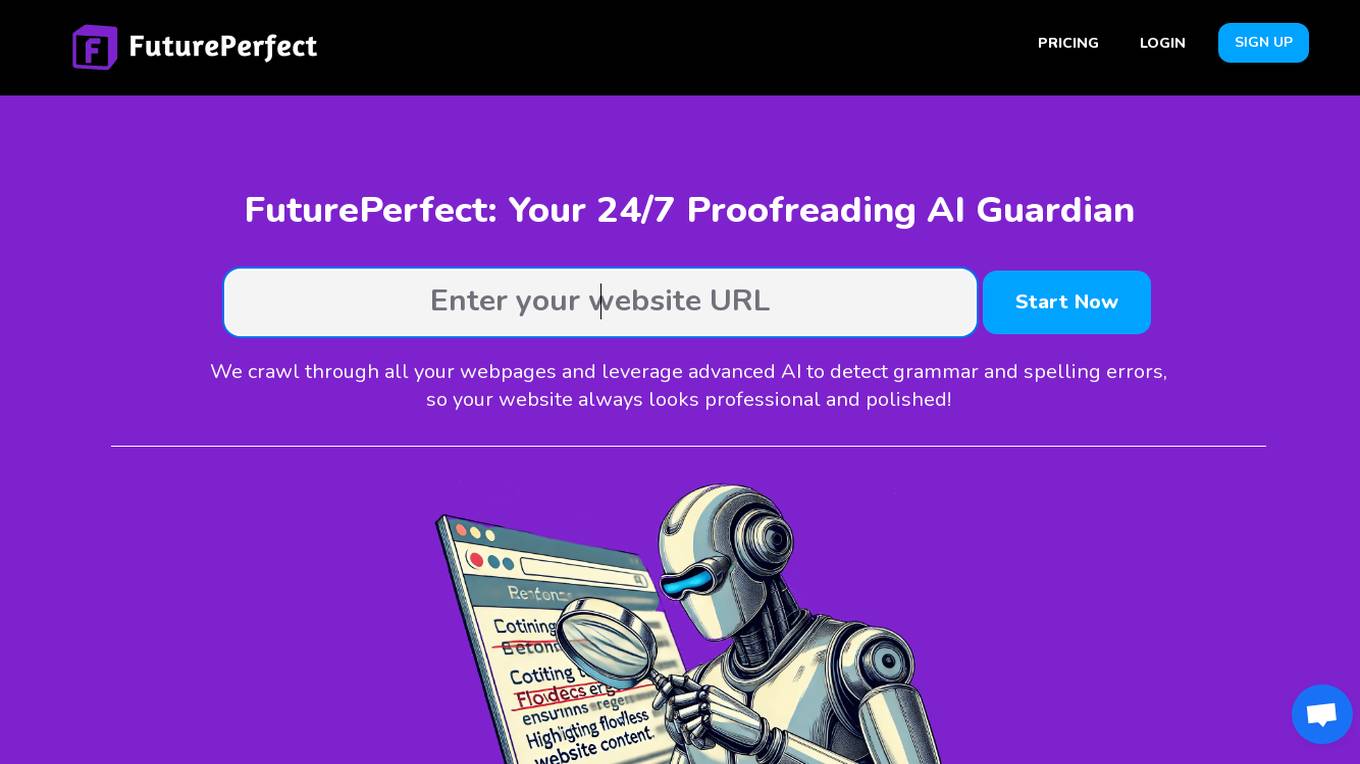
FuturePerfect
FuturePerfect is a 24/7 proofreading AI tool designed to crawl through websites and detect grammar and spelling errors in real-time. By leveraging advanced algorithms, it ensures that websites always maintain a professional and polished appearance, protecting the brand reputation from embarrassing mistakes that could potentially cost deals. With support for 30 languages, FuturePerfect offers seamless integration without the need for complex setup, providing instant alerts and detailed reports for error corrections.
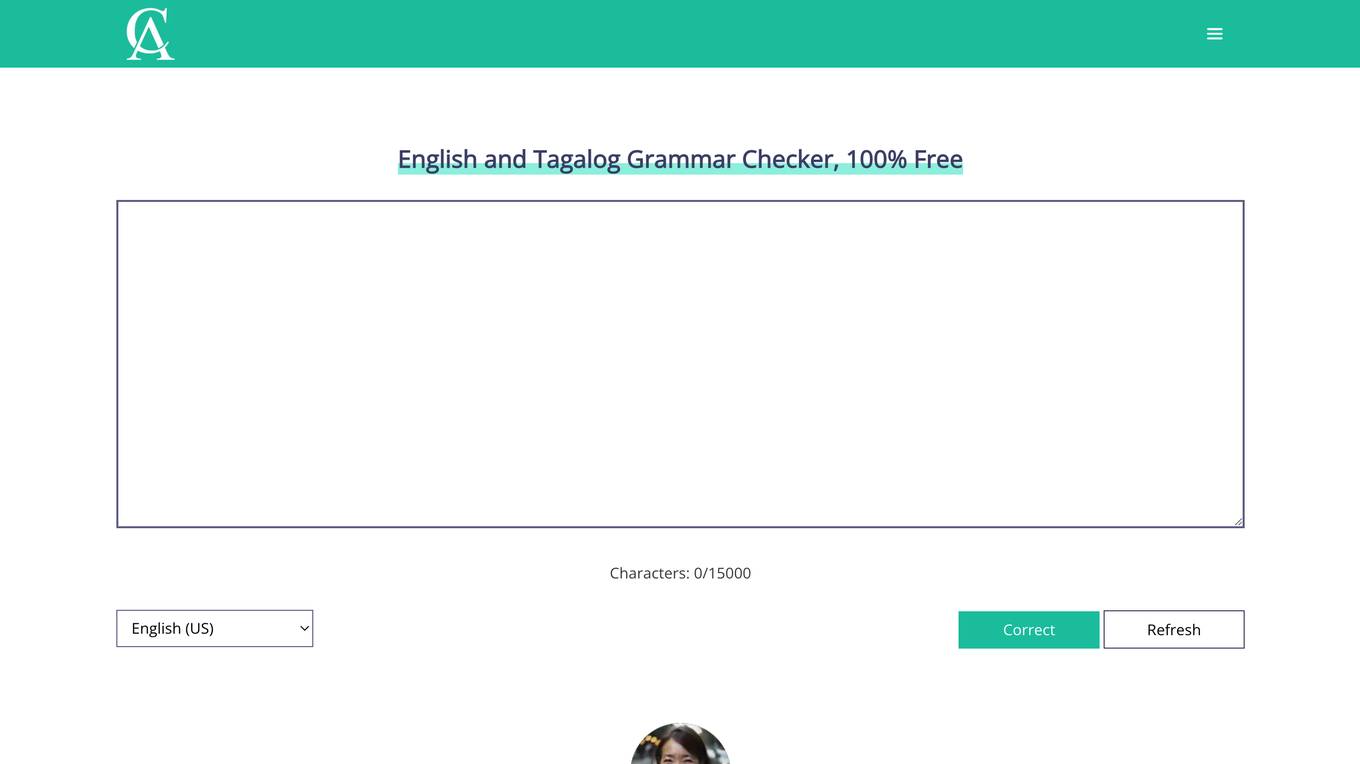
English and Tagalog Grammar Checker
English and Tagalog Grammar Checker is a free online tool that checks your grammar and spelling. It can also help you improve your writing style and avoid common mistakes. The tool is easy to use and can be used by anyone, regardless of their level of English proficiency.
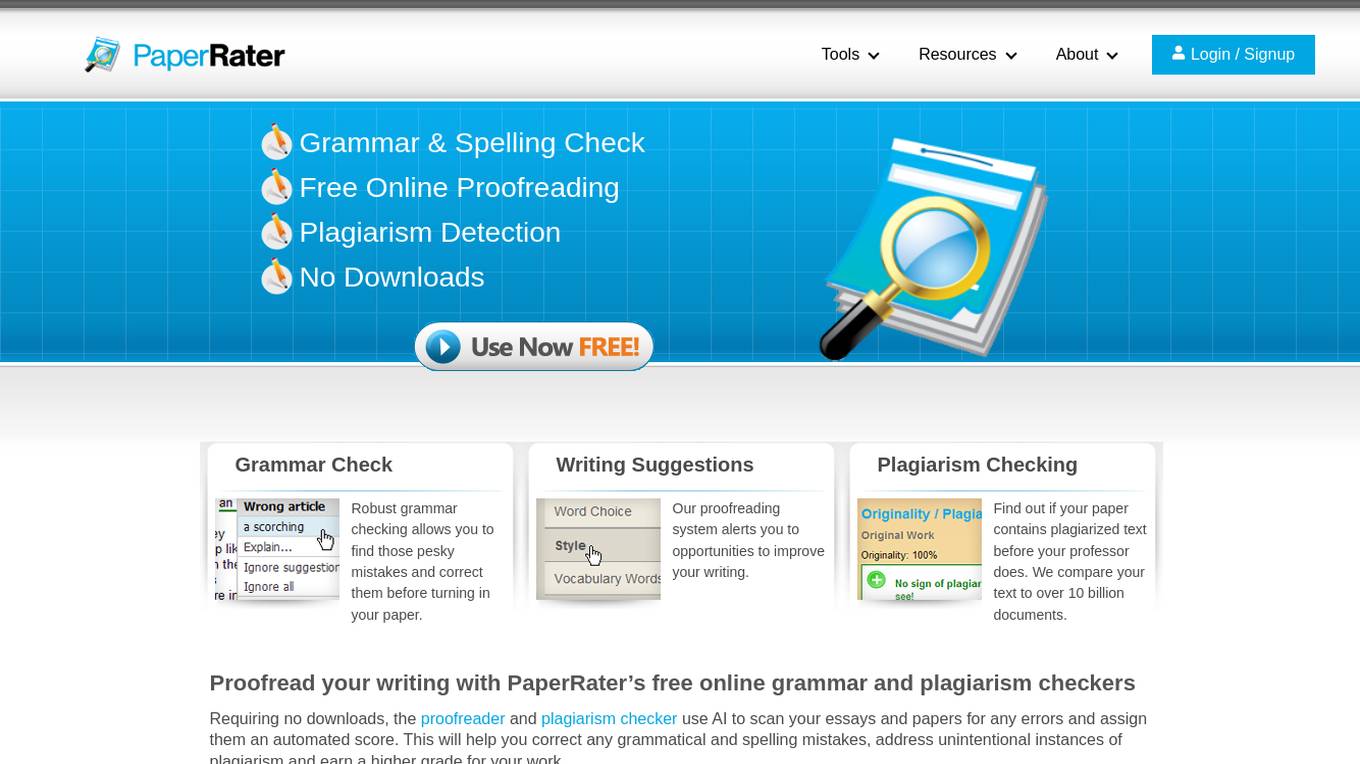
PaperRater
PaperRater is a free online proofreader and plagiarism checker that uses AI to scan essays and papers for errors and assign them an automated score. It offers grammar checking, writing suggestions, and plagiarism detection. PaperRater is accessible, requiring no downloads or signups, and is used by thousands of students every day in over 140 countries.

Trinka
Trinka is an AI-powered English grammar checker and language enhancement writing assistant designed for academic and technical writing. It corrects contextual spelling mistakes and advanced grammar errors by providing writing suggestions in real-time. Trinka helps professionals and academics ensure formal, concise, and engaging writing.

Trinka
Trinka is an AI-powered English grammar checker and language enhancement writing assistant designed for academic and technical writing. It corrects contextual spelling mistakes and advanced grammar errors by providing writing suggestions in real-time. Trinka helps professionals and academics ensure formal, concise, and engaging writing. Trinka's Enterprise solutions come with unlimited access and great customization options to all of Trinka's powerful capabilities.
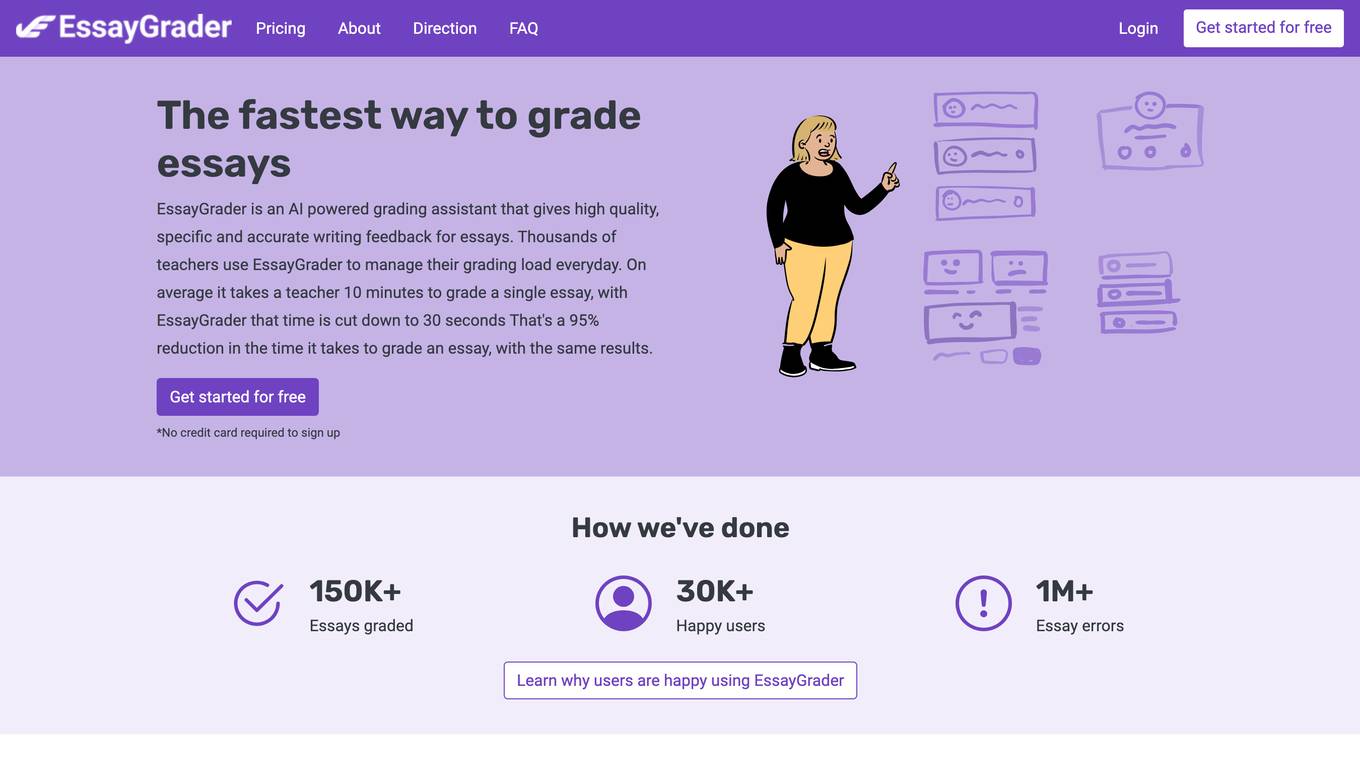
Essay Grader AI
Essay Grader AI is an AI-powered essay grading tool designed to help teachers streamline their grading process. It allows teachers to upload student submissions, apply customized rubrics, and receive instant, accurate grades and detailed feedback. The tool supports multiple languages and subjects, ensuring fair and consistent grading while saving teachers time and providing actionable insights to improve student writing proficiency.
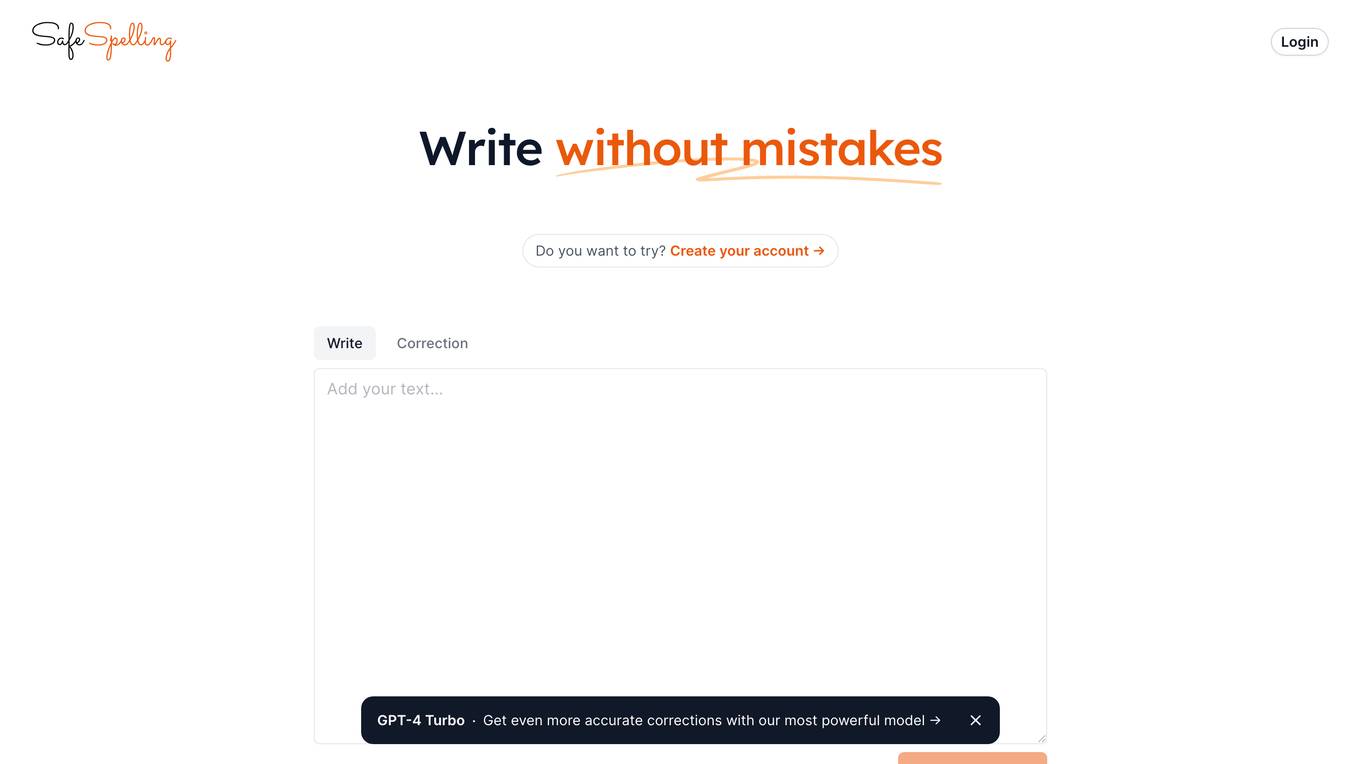
SafeSpelling
SafeSpelling is an AI-powered tool designed to help users write without mistakes. It provides users with the ability to input text and receive corrections for any spelling errors. The tool compares the original text with the corrected text, highlighting mistakes and offering suggestions for improvement. SafeSpelling aims to enhance the writing experience by ensuring that users can produce error-free content effortlessly.
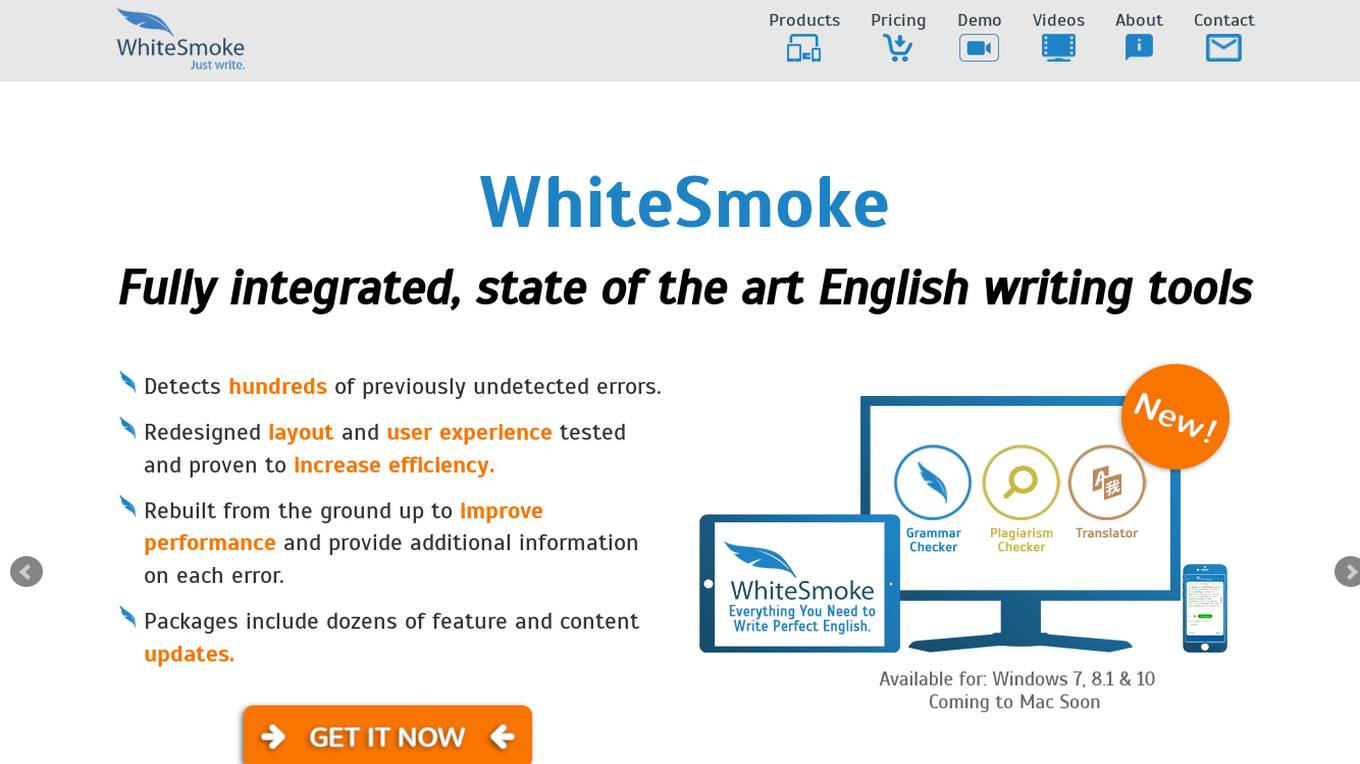
WhiteSmoke
WhiteSmoke is a world-leading language solution that offers fully integrated, state-of-the-art English writing tools. It detects hundreds of previously undetected errors, provides redesigned layout and user experience to increase efficiency, and offers dozens of feature and content updates. WhiteSmoke Premium Advanced Integrated Writing Solution includes spelling, grammar, punctuation, style, and plagiarism checker, along with over 100 document and letter templates, translator, dictionary for over 50 languages, video tutorials, error explanations, and text enrichment. WhiteSmoke Mobile provides perfect grammar at your fingertips with extensive writing tutorials and works on all Android and iOS devices. The tool is widely used by students, professional writers, executives, bloggers, governmental employees, and English learners.

Gramara
Gramara is an AI-powered grammar checker that helps you write error-free text. It can detect and correct a wide range of grammar, spelling, and punctuation errors, and it can also provide suggestions for improving your writing style.
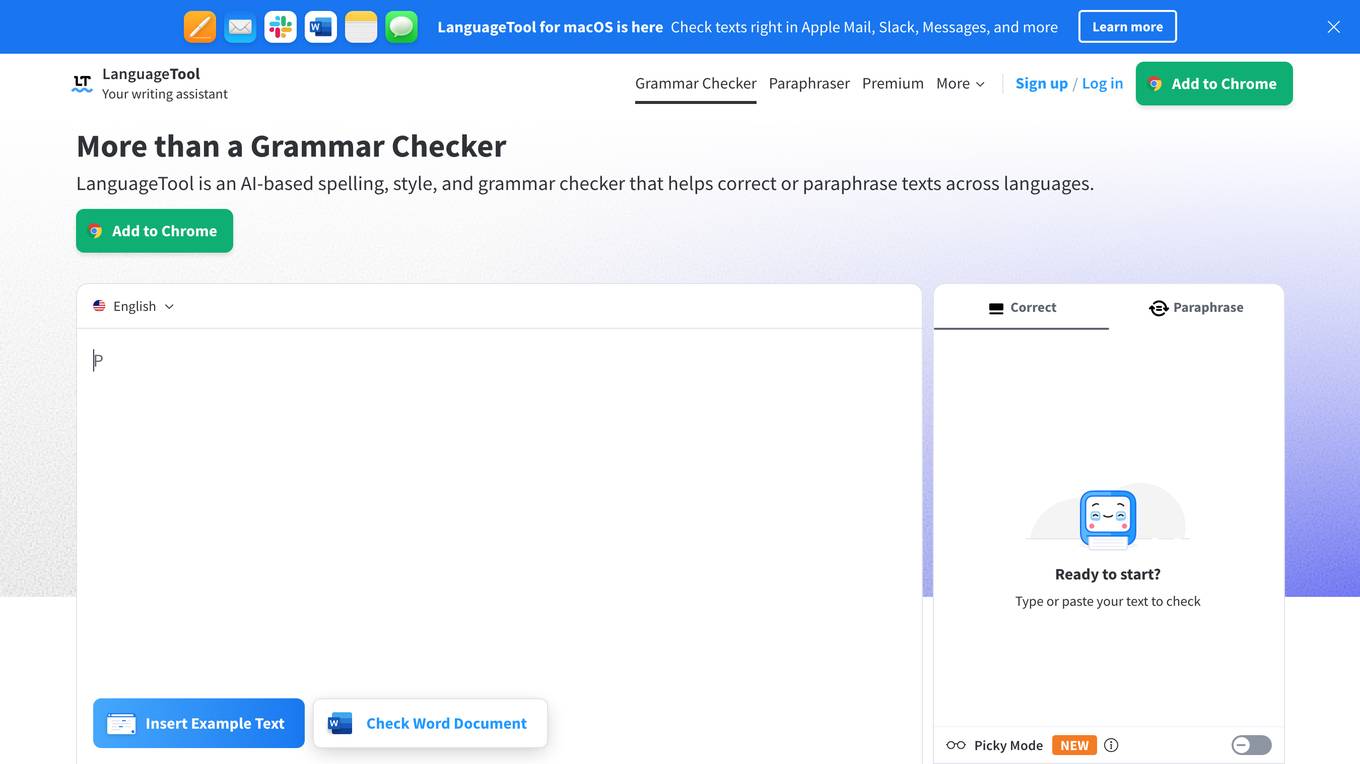
LanguageTool
LanguageTool is an AI-based spelling, style, and grammar checker that helps correct or paraphrase texts across languages. It offers a range of features including grammar checking, paraphrasing, punctuation correction, style improvement, and more. LanguageTool is available as a browser extension, desktop app, and mobile app, and it supports over 30 languages. It is used by over 2000 organizations, including BMW Group, European Union, Spiegel Magazine, and Deutsche Presse-Agentur (dpa).

Parea AI
Parea AI is an AI-powered writing assistant that helps you write better, faster, and more efficiently. It can help you with a variety of writing tasks, including generating text, translating languages, and checking grammar and spelling.
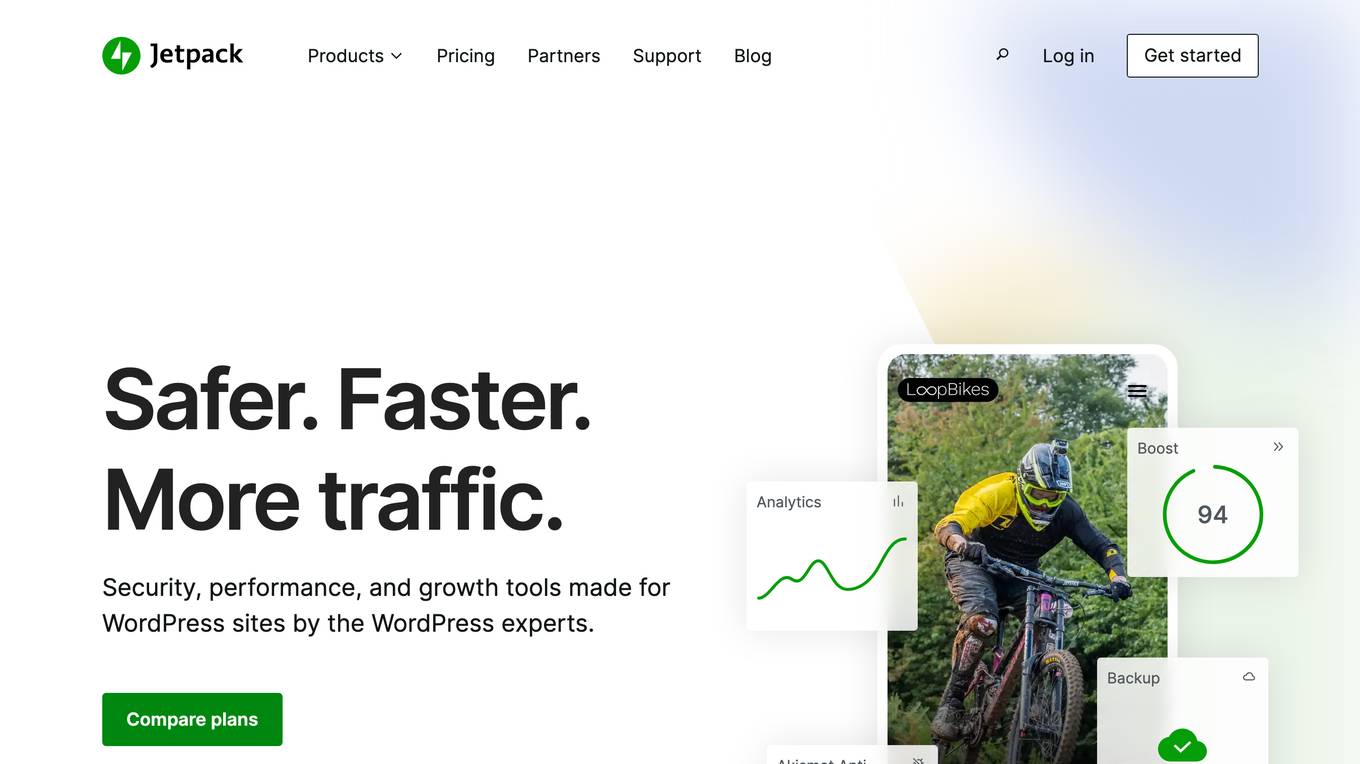
Jetpack
Jetpack is a comprehensive suite of tools designed to enhance the security, performance, and growth of WordPress websites. It offers a range of features, including real-time backups, malware scanning, spam protection, performance optimization, and social media integration. Jetpack is trusted by over 27 million WordPress sites and is known for its ease of use and comprehensive functionality.
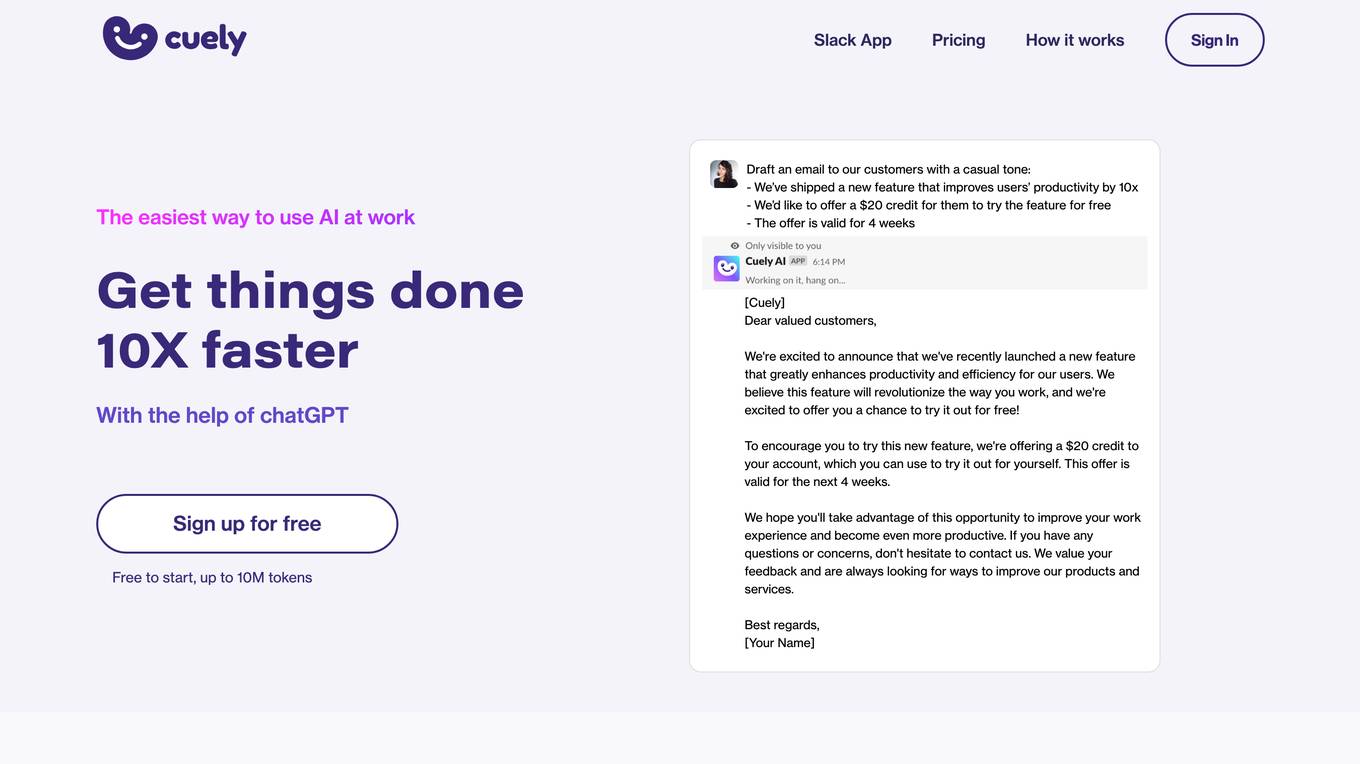
Cuely
Cuely is an AI-powered tool that helps users perform various tasks and improve their productivity within Slack. It offers a range of features, including drafting replies, checking grammar and spelling, summarizing text, translating languages, and providing advice on problems. Cuely is designed to be easy to use, with three ways to access its AI capabilities within Slack: using the /cue prompt command, mentioning @cuely in group chats, or messaging Cuely directly.
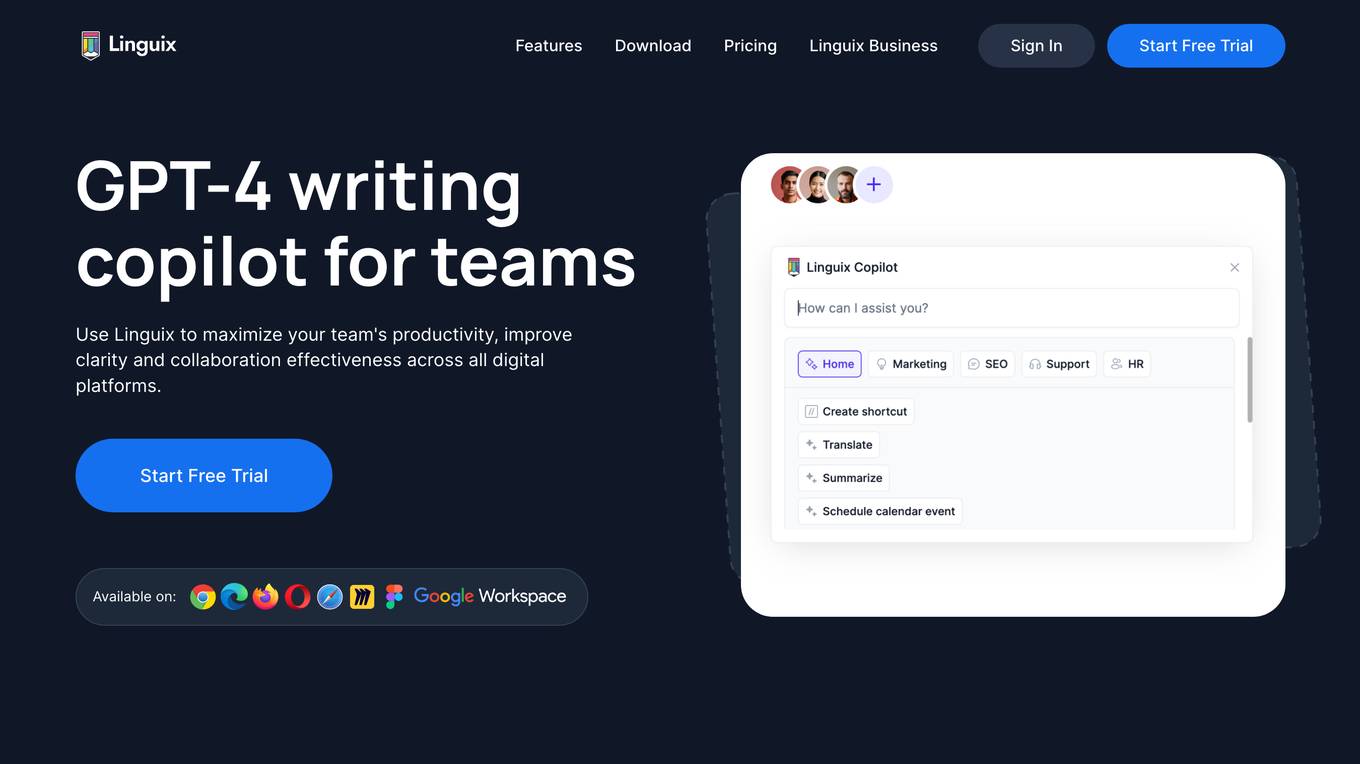
Linguix
Linguix is a GPT-4 writing and productivity copilot for teams. It uses artificial intelligence to improve grammar, spelling, and style, and to help users write more clearly and effectively. Linguix is available as a browser extension and a web editor, and it can be used with a variety of online platforms, including Gmail, Google Docs, and OpenAI. Linguix is trusted by over 310,000 users, including Google Chrome Store Featured App, Edge Store Featured App, Product Hunt Top #1 writing assistant, G2 reviews website Top proofreading tool, and Linguix for Figma Featured App.

Langcheck
Langcheck is an AI-powered language assistant that helps you write better in English. It checks your grammar, spelling, and style, and provides suggestions for improvement. Langcheck also offers a variety of writing tools, such as a thesaurus, a dictionary, and a translator.

Writeseed
Writeseed is an AI-powered writing tool that helps users create high-quality content quickly and easily. With over 70 fine-tuned AI templates, Writeseed can generate a wide range of content, including blog posts, articles, ad copy, and social media posts. Writeseed also offers a variety of features to help users improve their writing, such as an AI-powered editor that can check for grammar and style errors, and a plagiarism checker. Writeseed is a valuable tool for anyone who wants to create high-quality content quickly and easily.
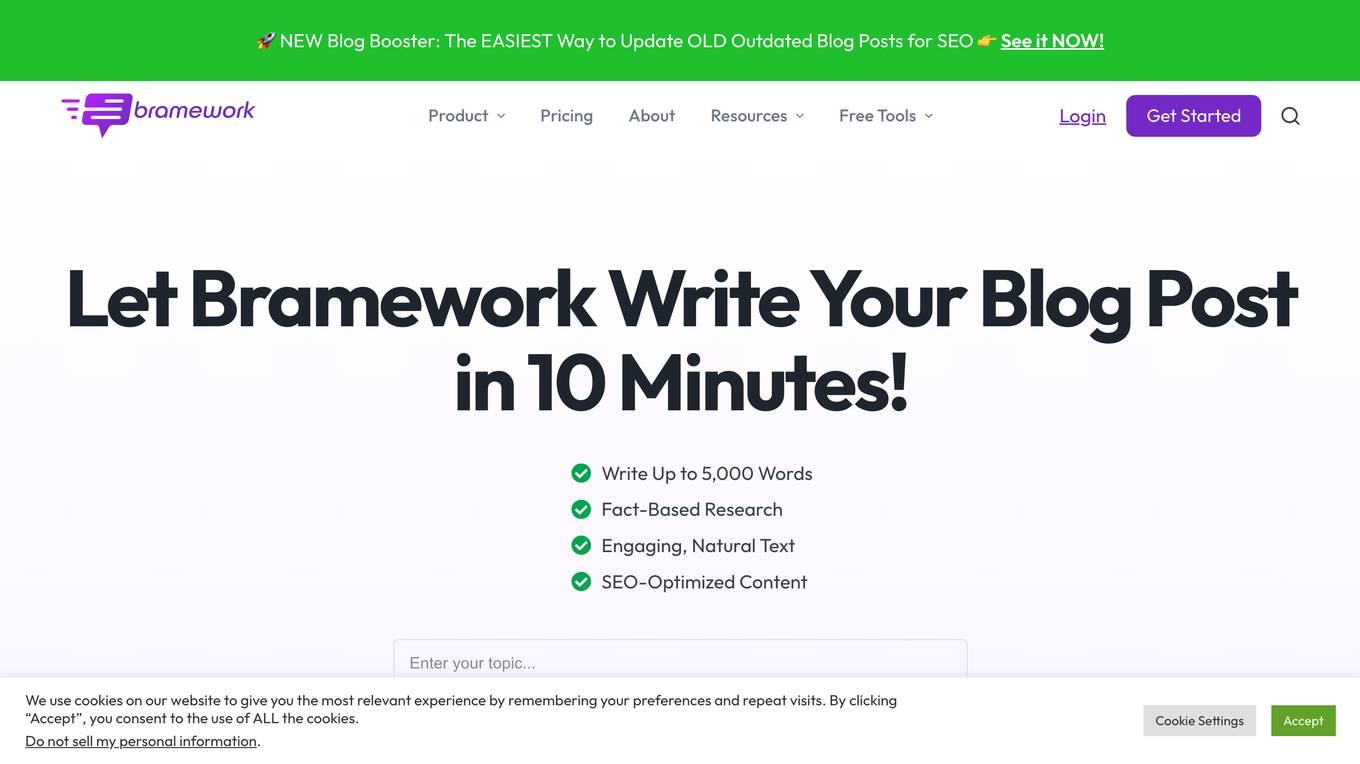
Bramework
Bramework is an AI-powered writing assistant that helps bloggers create high-quality, SEO-optimized content in a fraction of the time. With Bramework, you can generate blog post ideas, outlines, and full drafts in minutes. The tool also includes a plagiarism checker and a grammar checker to help you ensure that your content is error-free.
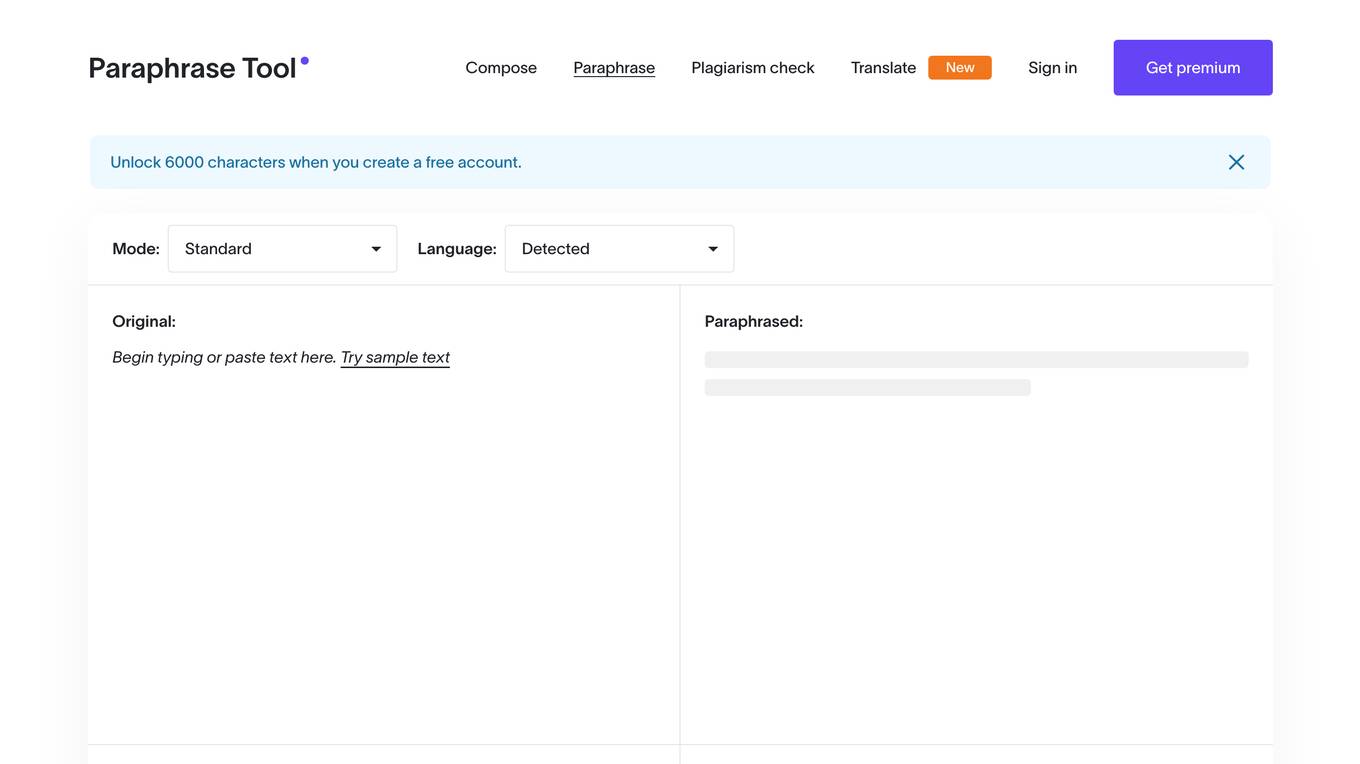
Paraphrase Tool
Paraphrase Tool is an online tool that helps users rewrite text in different ways. It uses artificial intelligence (AI) to generate paraphrased text that is unique and plagiarism-free. The tool offers 20 different modes, including a summarizer, grammar checker, text simplifier, and sentence shortener. It can also generate paragraphs from keywords and check text for plagiarism in over 50 languages. Paraphrase Tool is free to use, but users can also upgrade to a premium subscription for more features.
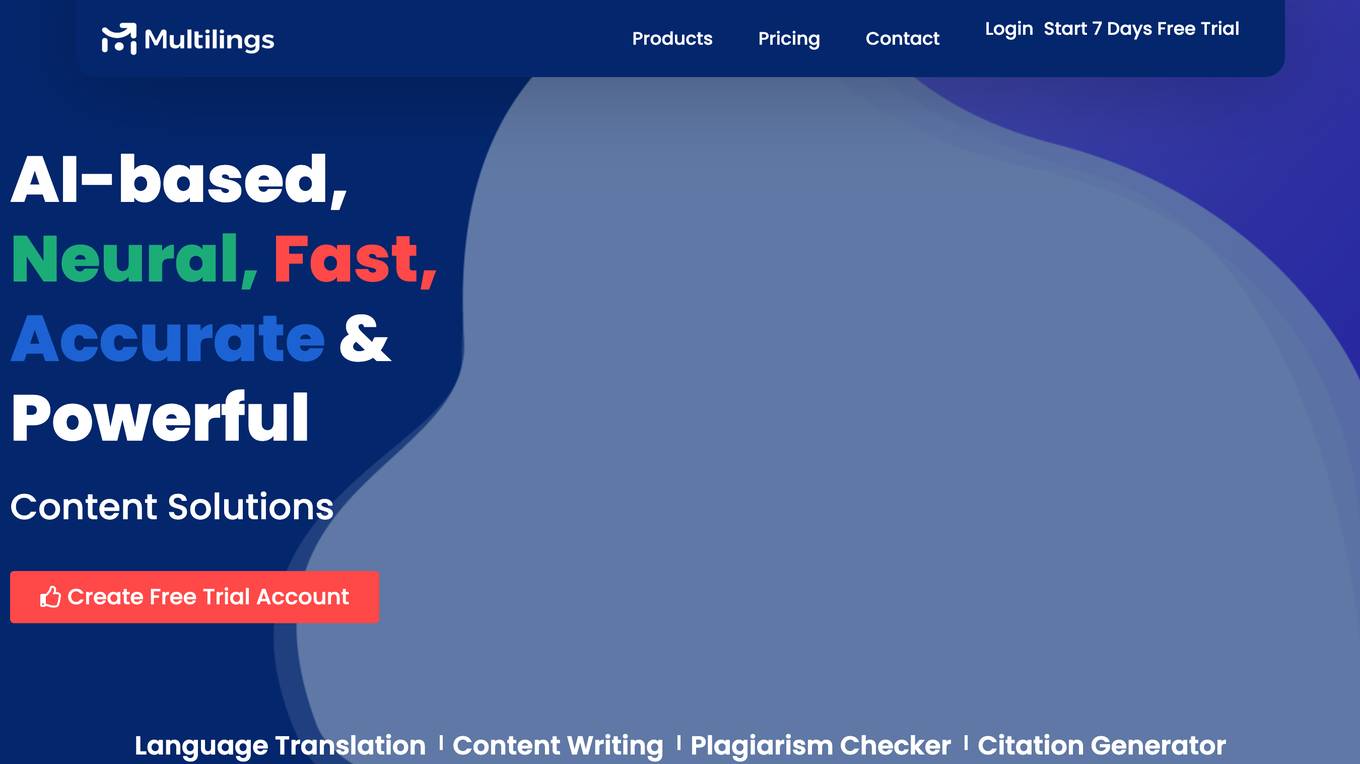
Multilings
Multilings is a neural AI-based machine learning service that provides human-like output for text translation, content writing, plagiarism detection, and voice translation. It is designed for marketers, content writers, researchers, students, and anyone who needs to create high-quality content quickly and efficiently. Multilings offers a range of tools, including a writing assistant, language translator, plagiarism checker, citation generator, and AI chatbot. These tools are powered by advanced machine learning and artificial intelligence algorithms that can generate natural-sounding text, translate languages accurately, detect plagiarism effectively, and provide helpful writing suggestions.
0 - Open Source AI Tools
20 - OpenAI Gpts
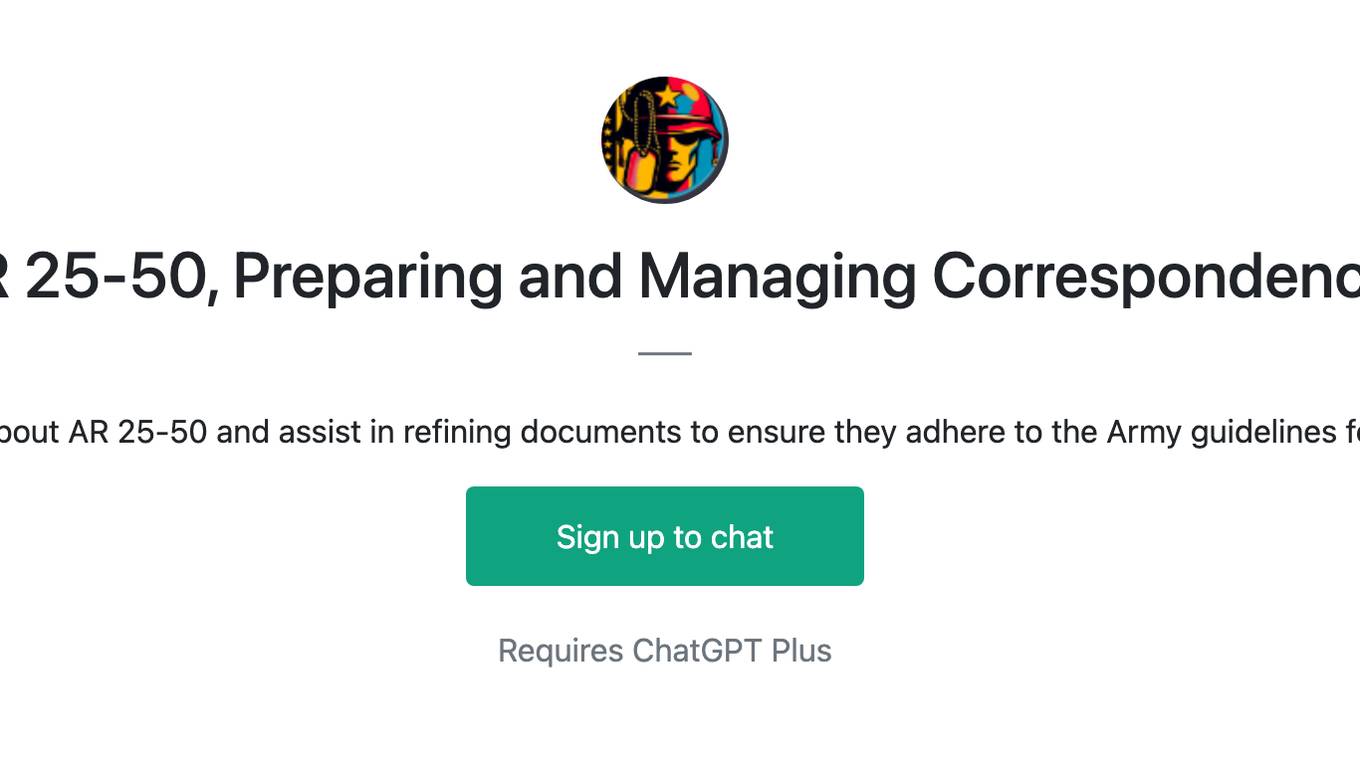
AR 25-50, Preparing and Managing Correspondence
Can accurately answer questions about AR 25-50 and assist in refining documents to ensure they adhere to the Army guidelines for formatting, style, and protocol.
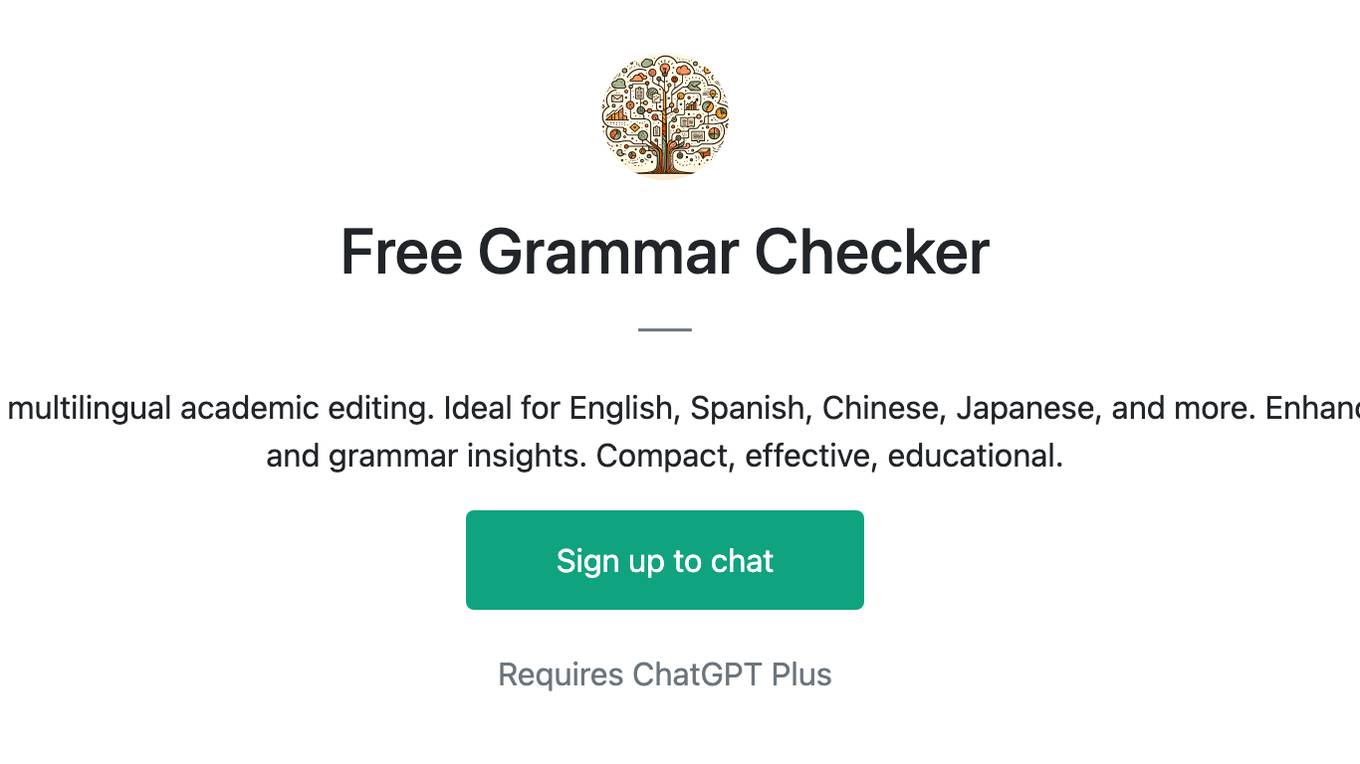
Free Grammar Checker
Free Grammar Checker: Your tool for precise, multilingual academic editing. Ideal for English, Spanish, Chinese, Japanese, and more. Enhance essays and theses with clear corrections and grammar insights. Compact, effective, educational.
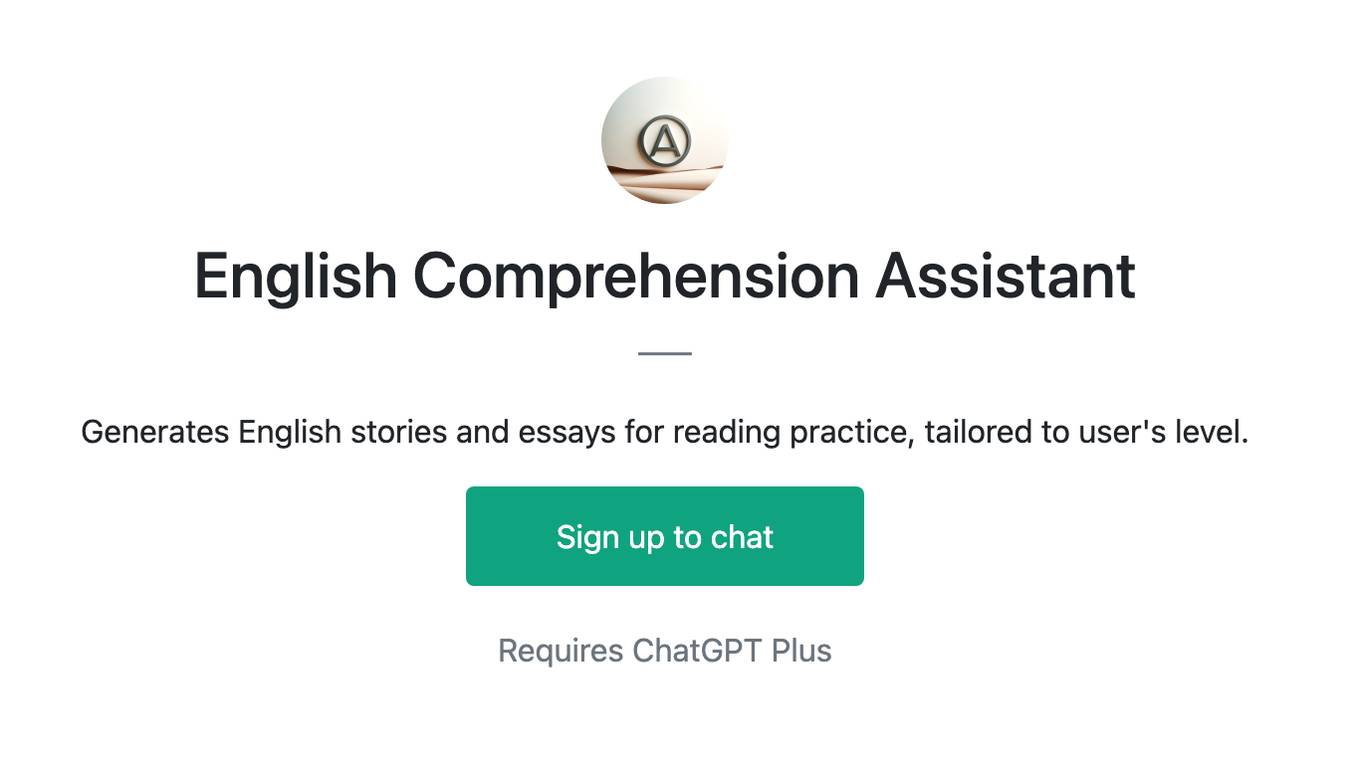
English Comprehension Assistant
Generates English stories and essays for reading practice, tailored to user's level.
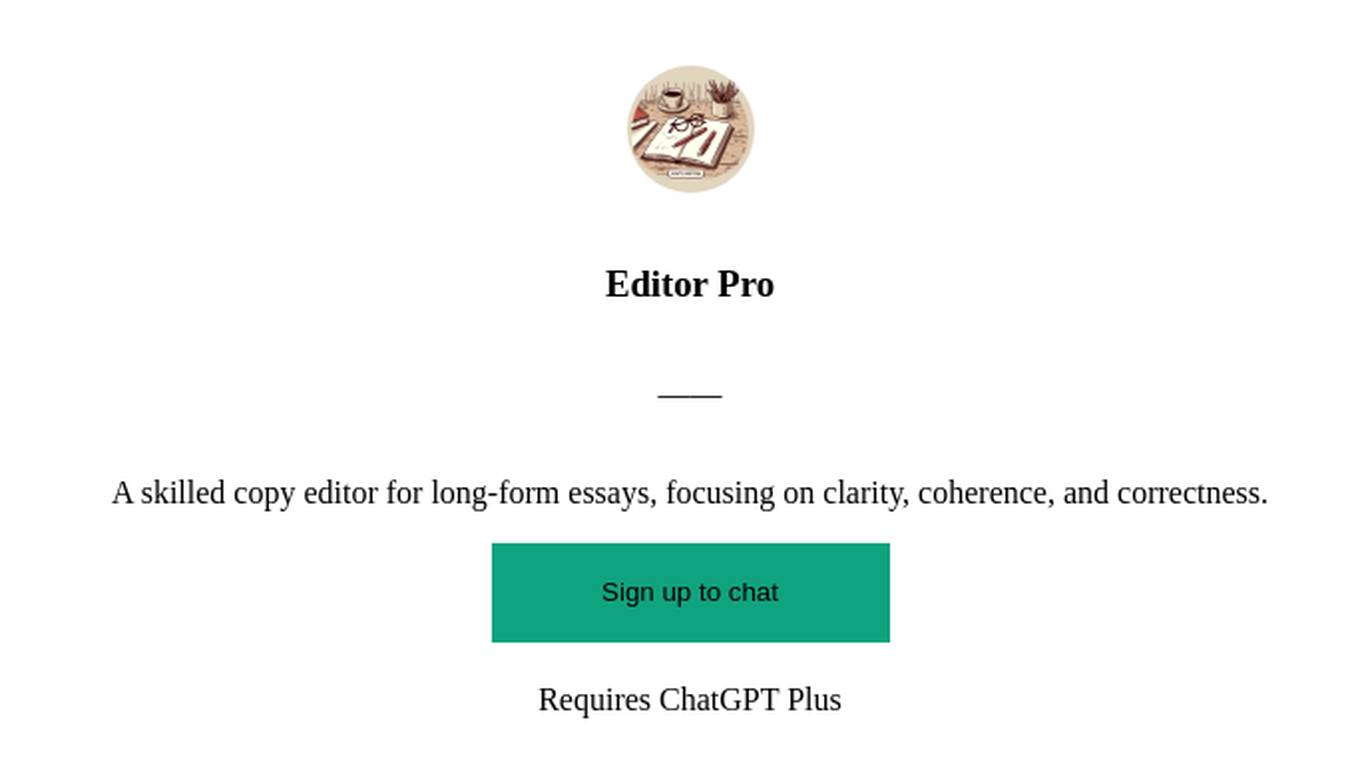
Editor Pro
A skilled copy editor for long-form essays, focusing on clarity, coherence, and correctness.
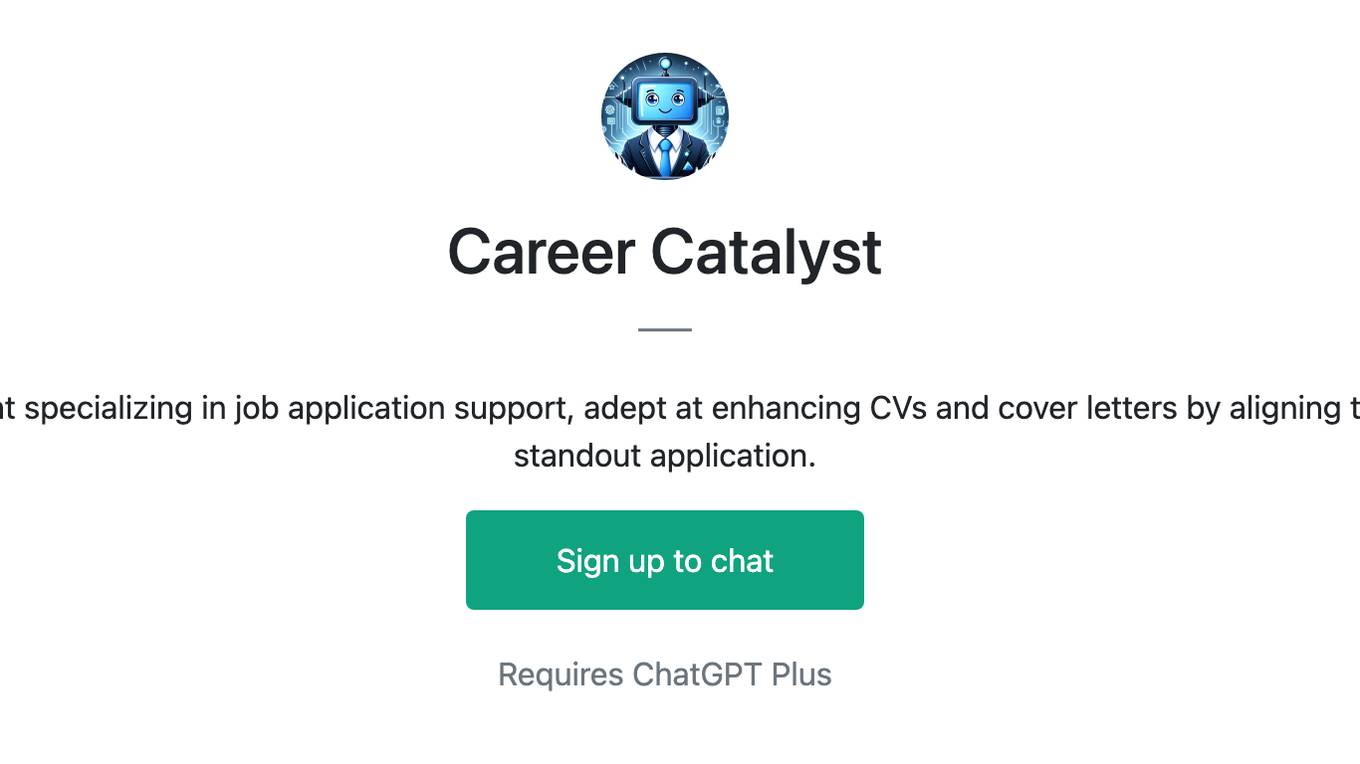
Career Catalyst
Career Catalyst is an AI-powered assistant specializing in job application support, adept at enhancing CVs and cover letters by aligning them with specific job descriptions for a standout application.
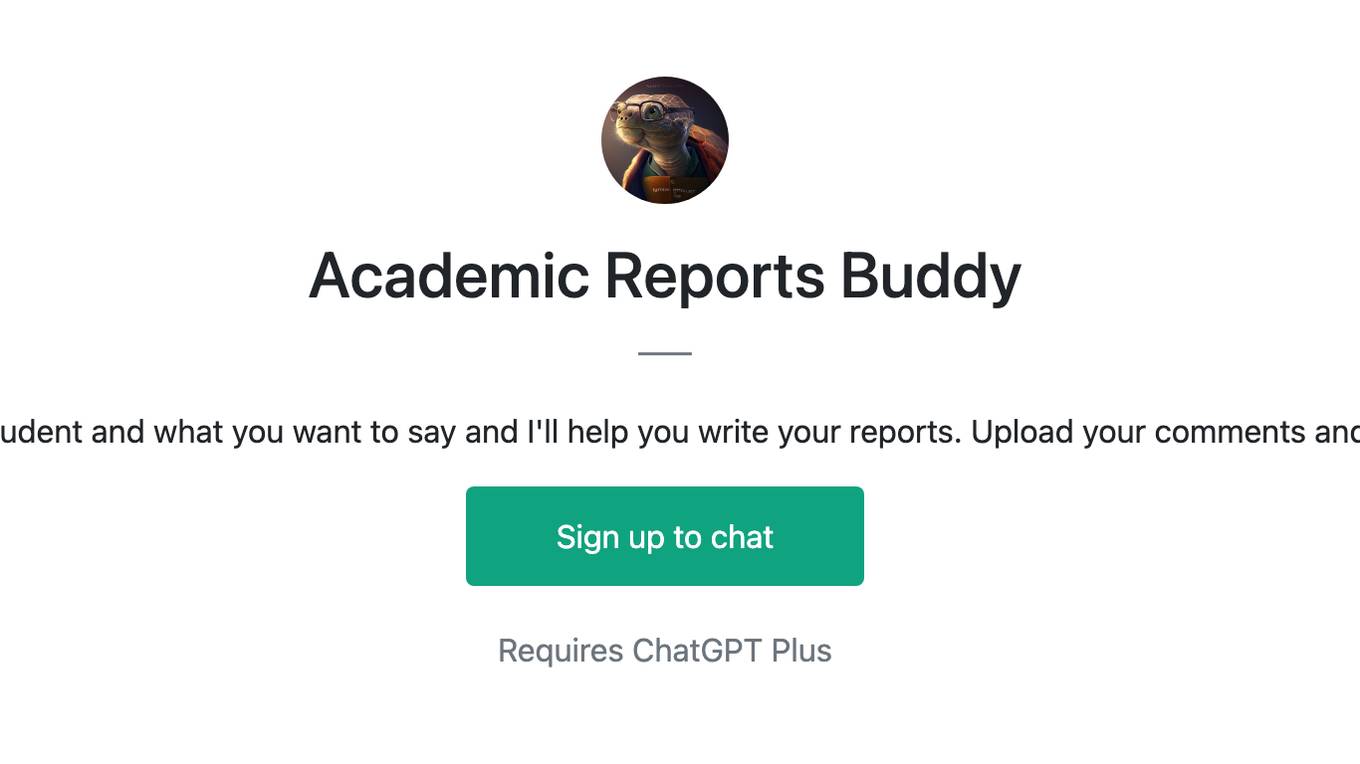
Academic Reports Buddy
Give me the name of a student and what you want to say and I'll help you write your reports. Upload your comments and I will proof read them.
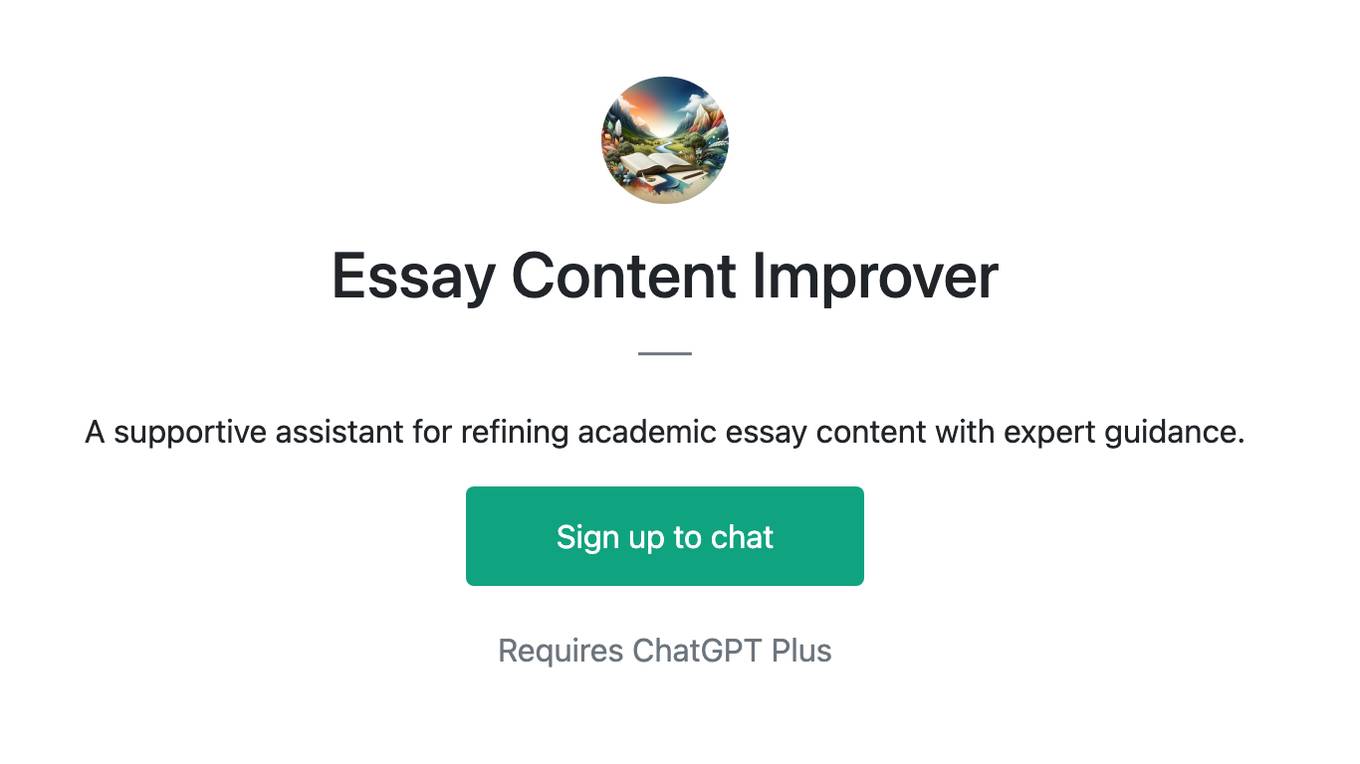
Essay Content Improver
A supportive assistant for refining academic essay content with expert guidance.

